And we’re back for the final blockbuster installment. Strap in, pop the recliner, grab the whisky because this one’s a provocative doozy, and let’s get to it!
35.
What's happening in Ethiopia?
Most importantly on our front Ethiopia has recently joined the BRICS, as you may know. Its official entry will begin on January 1, 2024, along with the other new members. Ethiopia was chosen with Egypt to be the two new African entrants most likely as Egypt represents the largest PPP economy and Ethiopia represents the second largest population after Nigeria, and I believe the fastest growing economy in all of Africa.
Ethiopia has particular historical importance to Russia. It has the moniker of being “the only African country never to be conquered or colonized.” Liberia shares the title but no one ever tried to invade Liberia by force. Ethiopia faced an attempted conquest by Italy but succeeded in repelling them with the help of Russia, forming an early bond between the two countries.
Here’s an article for those interested that gives an overview of Tsarist Russia’s unique relationship with Ethiopia that continues to this day:
That’s just to give a little context as to why Ethiopia continues to be geopolitically important. The Soviet navy and airforce had bases in Ethiopia during the Cold War, but after Ethiopia lost its sea territories to Eritrea in the 90s, it became landlocked. In the present day the Russian military continues to maneuver for new military cooperation. For instance, talks about helping Ethiopia build a navy which would be headquartered in Djibouti and other economic ties. Just yesterday was a new RT article about Russia opening a Lada factory in Ethiopia:
The Horn of Africa region is very geopolitically important as it overlooks the all-important Red Sea, where an outsize percentage of global trade traffic passes through. It’s why many powerful countries like U.S., China, and France all have bases inside Djibouti next door.
RT for instance writes:
The news that Russia is to build a naval base adjacent to the Red Sea underscores the geopolitical background to the recent escalation of conflict in Ethiopia.
The Horn of Africa with its intersection of trade routes is the subject of intense geopolitical contest. China and more recently Russia are offering economic partnership for development, while the Western powers, primarily the US, view the interplay with the usual zero-sum mentality not willing to tolerate any other “interloper”.
Ethiopia sits at the center of this geopolitical chess game in the Horn of Africa, resonating with the old scramble for Africa among European colonial powers in the late 19th century.
Ethiopia has been wracked by civil war with the Tigray region in the north which only recently ended. I’m not particularly knowledgeable on the intricacies of it, other than that it appeared to revolve around the new leadership seeking rapprochement with neighboring Eritrea which the Tigray rebels didn’t appreciate. Now some Russian sources claim that the new Ethiopian leader may be trying to move the country away from alignment with China, towards the West, which would be dangerous for obvious reasons. But I’m not certain or knowledgeable enough on the region to know how true this is—as with everything, there are always nuances and two sides to the story. Most situations in Africa are extremely multi-dimensional and rarely black and white. Just look at the Sudan situation where Russia and U.S. both have good relationships to various degrees with both the government and the “rebel” Rapid Support Forces. It makes things far more complicated than people like to imagine.
That’s why in Ethiopia, I can only assume it’s something similar. Prime Minister Abiy Ahmed appeared to ‘warm’ towards the West and initiate a ‘normalization of relations’ but he also attended the St. Petersburg Africa Summit and had cordial relations with Putin, not to mention joined BRICS. So I believe he’s trying to expand his country in every direction and not limit it to one bloc or another. But judging by the number of Western accolades he’s received in the past (many awards including the Nobel Peace Prize in 2019), I can only assume the West was really trying desperately to woo him, knowing the geopolitical significance of his country.
Beyond those basics, I’m not really familiar enough with the situation to give a truly insightful ‘under the surface’ reading as with the Ukrainian theater. Maybe
can write an article on Ethiopia in the future since surely the country’s significance will only grow now that it’s in the rarefied sphere of the BRICS.36.
What is the most realistic estimates of current Russian Defense Industrial production. Number of new 152mm shells, number of refurbished 152mm shells, new tank production, number of old models refurbished, etc?
Since the time of this request, I actually covered the tank production in some detail in the last report here.
The general gist is this:
We know Russia produced 175-250 tanks per year in most years circa-2010 and up, however it’s unknown how much of this number are refurbs/upgrades. Here’s total tanks per year in those years:
Russia was set to open two new factories this year just for refurbs/upgrades alone, which would drastically increase that number. My understanding is that these factories are not built from scratch but are the on-lining of previously mothballed factories. I have no precise information if they have already opened but we can assume they likely have as the intention to open them was made end of last year or early this year.
These new factories, according to The Economist at least, would allow Russia to refurb/upgrade 90+ tanks per month, in addition to the 20+ brand new monthly tanks manufactured at the Nizhny Tagil factory of Uralvagonzavod. This would allow 110/monthly or 1,320 yearly total tanks, according to the Economist’s numbers.
This is not far off from what Putin and Medvedev proposed. Earlier this year, both of them stated Russia will produce a total of 1500-1600 tanks for the 2023 year period:
They specifically say this is new plus upgrades. My understanding is Russia is only producing new ones at the Tagil plant. The 103rd Armored plant in Atamanovka refurbs the upgraded T-62s, and the Omsktransmash plant does the T-80s, though the head has announced Russia charged them with the mission of restarting a fullblown original T-80 line. Thus they will produce brand new T-80s in the future, but this may still be a ways off, judging by the obstacles that were implied still exist.
Speaking of, at the time of this writing another large new batch of T-80BVM upgrades was just shipped to the front:
This is significant because a fresh batch of them had just been seen a couple months ago. Other experts have noted it:
Omsktransmash has delivered another batch of T-80BVM tanks. Months ago, the company has taken around 180 old T-80 tanks from depots and plans to modernize and deliver them this year. Typically, they release batches of 20-30 units every 40-60 days.
Before the war, the company used to produce an average of 40 tanks annually, but they had the capacity to modernize about 400 units annually. Currently, the Armored Repair Plants are refurbishing the old T-80 tanks, while Omsktransmash is responsible for modernizing them into T-80BVM tanks.
We can expect around 50-70 more T-80BVM tanks to be delivered by the end of this year. Based on my estimates, the annual production could reach approximately 180-200 units. In an effort to balance the game, Ukraine will acquire 31 Abrams tanks and is negotiating the deliver of around 20 more Leopard 2 tanks.
They believe the T-80 upgrades alone will be around 200 for the year. This is a mostly pro-Ukrainian source so I expect they’re undercounting it a bit, but at least it gives a rough idea.
It could fit with Western estimates because if you break it down into 20 brand new T-72s produced per month, as well as 20 refurbs of every other tank class, you get an annual output of roughly: 200+ T-72s, 200+ upgraded T-80s, 200+ upgraded T-62s, 200+ upgraded T-90s, and 200+ upgraded T-72s from old hulls taken from storage rather than built from scratch. This would get you at least 1000-1200 total tanks per year.
This jibes with a video I saw earlier this year of the T-62 refurb factory where they said a full ‘tank battalion’ of them had already been shipped to the front. The pace seemed to be a tank battalion per quarter, which would correspond to about 40-50 tanks per quarter or upwards of 200 annually. We can assume this could be the rough pace of the other factories as well, which is how we’d get the baseline minimum of at least 1000+ total yearly tanks. Putin/Medvedev’s 1500-1600 would be the optimistic ceiling.
I’m not sure exactly how they’d reach the 1500-1600 number. Perhaps adding 200 yearly T-55s to the mix as well as the brand new T-72 hull production could be severely undercounted by Western sources. The reason is that Uralvagonzavod is arguably the largest manufacturer on earth but the majority of their plants (they have dozens of plants) were focused on building civilian machines like trolleys, trams, subway trains, etc. However earlier this year I read that some or all of their civilian lines would be turned over to tanks, not to mention the general increase to three 24/7 shifts for all lines. So we can only deduce that such a potentially massive increase in productivity would yield far more than 20 new T-72s per month.
I had already showed how the USSR, using the same factories, produced upwards of 1500+ brand new tanks per year:
Just as an example, the U.S.’s Lima plant which produces the Abrams tank, began with 30 a month and topped out at 120 in the 80s:
Anyone who thinks the U.S. can produce 120 Abrams per month (1,440 per year) in one small plant, but Russia can’t produce, upgrade, and refurb all combined the same number yearly in dozens of huge plants is simply crazy.
This is why it’s very plausible that Russia is doing at least somewhere near the stated goal numbers of 1500-1600, but I’ll say at the minimum it’s ~1200 yearly. By 2024 it will certainly be 1600 and beyond. Not only because Russia is continually streamlining, finetuning, and opening those new plants, which may still be in the process of getting fully up and running, but Russia is also vastly increasing its total defense budget from 3.9% of GDP to over 6% in 2024, making it one of the highest in the world.
Russia was said to begin mass producing the Armata next year. If they do that and open the line for brand new T-80s, then we can expect another potential 200 annual hulls of new T-80s on top of 200 refurbed ones from old hulls. If they could somehow pump out 100-200 Armatas then it would represent at least 300-400 new total annual tanks.
By the way, one tank expert on Twitter has the breakdown as follows:
260-350 T90M/T-72B3M
180-200 T-80BVM
220-250 T-62M
For ~800 total yearly tanks.
Here’s a new video from Russia’s T-72 Tagil plant:
As for shells, firstly I advise you to reference my previous article, which is from earlier this year but still holds up accurately:
The current concensus from the West estimates that Russia is producing 2.5 million 152mm per year, which would be 208k monthly, compared to U.S.’s current 28k monthly. However, as I posted in that older article, previous documents showed Russia maintained the capacity to produce 2M shells yearly even long before the SMO:
Other estimates have Russia doing minimum 3.5M per year currently or even as high as 4-6M with the eventual goal of at least 7M if not more. Thus, given that they did 2M easily before, the 2.5M estimates seem to me as coping undercounts from the West. I’d say Russia does at least 3.5M - 4.5M currently, and it will increase drastically in 2024.
The thing is, even 4,500,000 only allows you to fire only 12,500 shells per day. Sure, Russia did 60k at its peak and ran through its stockpile, but even after that, Ukraine claims Russia still fires much more than 12.5k per day. This would seem to point to the fact that Russia already does as high as 7-8M shells per year—it’s possible.
So I’d say the range is somewhere in between ~4M or so at minimum up to 7M and up.
37.
How does medical care work in Russia. Is it free? Insurance based like in US and China? In the 90s I heard stories about having to pay for ambulances before they would pick you up. Maybe this was propaganda.
The basic gist of it is that there is a universal socialized healthcare which is free through a system of compulsory insurance that everyone gets usually through their employers. However, there are also private clinics you can choose to go to for which you pay out of pocket. They’re usually considered “better” than the free ones in many cases, though many or most people go to the free ones even for important surgeries and have fine experiences.
The real biggest reason someone would choose a private clinic is that the public/free ones might have a waiting period for a particular procedure you might need, or something like that. Also, women giving birth might choose to pay a private clinic in order to get the best possible quality for their baby but I’ve honestly not heard any bad things from the free ones in this regard.
I’ve seen a few Europeans in recent months who have experienced the free clinics in Russia and compared them favorably to those in places like Germany. In fact, if you’re one of those people who have experienced both Russia’s public healthcare system and somewhere else in Europe, chime in in the comments and let us know your honest thoughts on the comparison.
In fact I’ve seen several videos like this one where Ukrainian refugees now living in Germany complain about how poor the German healthcare system is, which is interesting.
As for those stories you mention, about paying ambulances and things of that nature—that must be a carryover from the chaotic 90s. There’s nothing like that anymore, ambulances are completely free. However, as with other countries, there are also some ‘private’ clinic ambulances you can call with their own separate number so maybe your story is from one of those. I can imagine those perhaps demanding money first if you don’t have a record or previous account with them already—or something like that.
Lastly, here’s a video from an American living in Russia which actually shows some of the differences with a few different private and public clinics in the Moscow area:
But also check the comments as there are a bunch of people replying with their own experience, like this one:
-juliadodon834
8 months ago
In the Netherlands to get an MRI scan you wait for few months, it will cost about 1000 euro and you won't get your scan results in hands. Same for most of x-rays. In Russia we arranged it within a day for free...
38.
Two related questions:
The SMO has opened my eyes as to how most of what I thought I knew about Putin and the Russian Federation was US propaganda.
I would like to learn more about what’s happening on the Russian home front. Public opinion. Economics. Are there shortages/hardships for the civilian population? Does the average Ivan pay attention to the fighting on a daily basis? What are returning veterans experiencing? How has the SMO changed Russians’ views of their country and themselves?
This is probably not a mailbag question, but more of a suggestion for future posts
And:
please show us more of the thoughts and feelings and comments from ordinary Russians regarding the SMO
I’ll try to include more about such things in future posts.
For now I’ll make some comments in that regard. In general, from the perspective of public sentiment on the SMO specifically, I’ve covered that in depth from time to time with a series of public opinion polls on a variety of topics. For instance, scroll down in this report until you see the long series of polls:
You’ll see a series of surveys of Russian society regarding Putin, Shoigu, the general sentiment toward the SMO and whether Russia as a country is headed in the right direction, etc.
Depending on who you’ll ask, they’ll answer differently, particularly given their political and ideological leanings. Everyone has a ‘motivated reasoning’ filter with which they take in information and process it with inbuilt biases. So there are certain elements of society in Russia who genuinely believe that everything is at its worst.
However, in my view, Russia is currently in its best place in half a century. Certainly in regard to the entire post-USSR period. The public morale, economy, societal solidarity and general political stability is absolutely at its highest.
The problem is, Russians are some of the least aware people of conditions in other countries particularly Europe and the West. This results in their perennial pessimism in comparing their conditions to the West. Many Russians will unfavorably compare themselves to Europe or complain about economic matters, low pay, high prices, inflation, etc., while not being cognizant of the fact that all these things are usually worse in most of the West.
In general, ever since Putin got rid of Western NGOs and other propaganda arms, the Russian society has been at its most firm and stable because there aren’t the usual CIA engineered social movements which destabilize every enemy society.
With Soros NGOs gone, Western media throttled, pernicious CIA-provocateurs masquerading as “diplomats” cutdown with major embassy/consul cutbacks, LGBT propaganda dialed down even more than before, as well as cultural shifts to, not deplatform per se, but cut down the reach of other “undesirable” elements of society, like for instance gangster rappers (the worst ones of which were shouldered out of Russia, forced to take refuge in Dubai, etc.). These things have created a much stable and uniform society where even the youthful generation is starting to grow up more culturally and historically aware and educated rather than indoctrinated by anti-Russian or Russophobic nonsense. Partly responsible have been new campaigns and initiatives to redesign curricula in schools which focus on telling correct history.
In fact the Russian education ministry is in the process of completely redesigning the curriculum to not only create a much more standardized one but one that focuses on more patriotic learning that infuses the spirit of Russian history, language, culture, much more than the school books passed down from the 90s era, written by Western and Soros NGOs.
In short, the SMO has fostered a period of revitalization of Russian national pride, a sense of ‘center’ and identity amongst the population.
As for hardships, like I said if you ask the average Russian citizen, they will surely list a litany of complaints about pay, prices, etc. But when they learn that it’s even worse in Europe, they’re usually shocked and refuse to even believe it. Interestingly on that front, Putin has announced a new initiative to “transition the country to a high wage economy over the next 10 years,” and thus is really focusing on this area.
Things are very plentiful in Russia, so shortages are most certainly not an issue in almost any category. The bigger issue is simply the above—the wages as compared to living costs and rising prices. The prices for almost everything is still much lower than in the West, but Russians still feel their wages are not up to snuff or commensurate with those prices.
Just to give you an idea, this channel I enjoy had a new video just a week ago, where the (I believe) American videographer traveled to Russia’s absolute poorest and most “notorious” region. He brought a trainload of “stereotype” baggage with him, and endeavoured to confirm how true the stereotypes were. If you watch it, you’ll see that even in the poorest region, almost every stereotype turned out to be false. Not only was the crime, according to the locals, not that bad anymore, the other standout was that even on the topic of prices and wages, the locals didn’t seem to complain. They appeared mostly satisfied with it. See for yourself:
In fact ironically, the only complaint from one of the business owners in the video was almost an indirect compliment. He said that Putin’s government gives so much money and help to people, that he can’t get proper workers for his business because they’re happy to stay home and collect handouts from Putin, which are enough to make ends meet for them. That alone was telling.
Likewise, in another case of “irony”, one of the only current known issues with the Russian economy is that the unemployment is so low that businesses complain they don’t have enough labor to hire because everyone is already employed.
As for veterans, there has been a spate of veteran attacks in the news recently. Over the past month or two a few hooligans have beat up some veterans in the streets, and one Wagner veteran was just killed in the street by some unhinged “karate” expert. However, apart from this I haven’t heard much bad things and generally from the official perspective veterans are greatly honored.
One of the only other current “big issues” in Russian society is that of migrants, as with most societies. Once again here Russia doesn’t have it anywhere near as bad as elsewhere in the West. Russia has very strict migrant controls compared to the West and is the only “Western” country that actually actively deports migrants all the time, if they are found to be illegal.
But as with everything, Russians don’t know how bad the West has it in this regard, and so internally they complain because migrants from central Asian countries like Tajikistan, Uzbekistan, etc., sometimes make trouble or form insular cliques/communities, gangs, etc. It’s the standard sort of racial/ethnic tension that pretty much every country deals with, and as with everywhere else, Russia is forced to use cheap migrant labor in a lot of areas like construction, etc.
But like I said, perspective is necessary. The issues are no where near as bad in Russia as in all other Western countries.
39.
Not really a question for the mailbag but would like to throw it there since we just passed the anniversary.
What’s your take on 9/11?
Someone else asked about 9/11 on Part 1 of the mailbag here. Please consult that under question #11 to get my stance on it.
As a general take on the event itself though, as opposed to its causes, ramifications, consequences, implications, etc., what I’ll say is that I’m definitely not in the most ‘far out’ camp of people who believe the buildings were brought down by:
space lasers
holograms
planes didn’t exist at all
etc.
Well, I should modify that to—certainly in the Shanksville, PA and Pentagon hits, the jury is still out whether those were actually real planes or not. Probably they were, but I’m just saying we don’t know for definite. But most certainly real planes hit the towers in New York—there are far too many angles to even bother indulging the crowd who thinks it was CGI, etc. As for all the tiny little video ‘inconsistencies’ like jet wings clipping “behind” the building etc.—such claims are made only by people without experience with video compression and things of that nature. All the small video incongruities are easily explained by the various compression artefacts of that era’s video resolution/technology.
Additionally, using Occam’s razor as an example, it really makes little sense to use such exotic alien/laser/hologram technology in an operation where it’s much easier to just use real jets. Whether those jets were actually legitimate, in service airliners at the time is another question. There are a lot of inconsistencies with the passengers who claimed to be on board and their relatives, etc.
Either way, we know some kind of jets hit the towers.
At the end of the day, none of that matters because as I outlined in the first response, all that’s really important is the why rather than the how. The ‘how’ is merely a technical point meant to distract us away from following the why, which tells us the true reasons and ramifications for it all. And those overall reasons are outlined in my article here:
But as I mentioned elsewhere, I’m sure there were many other ‘subsidiary’ objectives that 9/11 helped to quietly accomplish. These include the massive insurance fraud, for instance as implicating Silverstein, as well as the trillions in wiped Pentagon money, the stolen secret gold vaults beneath the WTC, and probably several other ones I’m forgetting. Maybe the biggest of all is that it was likely a giant occult ritual by the Rockefeller clan which left their mark all over NYC to begin with, but that’s a whole other tale.
Lastly, as a general thing, Ryan Dawson’s work on 9/11 is probably the best, most thorough, and accurate “take” on the event, so if you’re not familiar with his years or decades of work on it, that’s the best place to start.
40.
Very long preamble truncated down to the question:
Now simplicius... I ask, does what I have commented here have merit. I know that I have turned things on its head here by not asking a specific question of you but hey, I got that off my chest. Anyway it's your platform and you can do as you please.
The preamble consisted of basically that Zionists and Jewish bankers run the Western world and the Project for a New American Century is really a Zionist project, etc. There wasn’t really a question there, but since you did mention Ukraine I’ll briefly comment on that.
It’s pretty well established and indisputable that there is a major outsize Jewish influence going on vis a vis Ukraine. Not only was Jewish oligarch Kolomoisky the main benefactor and sponsor who “created”—as some say—Jewish Zelensky by funding his television shows, political movements, etc., but once the American neocons moved in, they put many fellow Jews in charge as well.
Notably this was Victoria Nuland, who is married to Robert Kagan, the Jewish founder of the Project for a New American century, responsible for all the Middle Eastern wars of the 21st century.
Nuland famously said “Yats is our guy” when she installed the Jewish Yatsynuk into power, though she also discussed Jewish Klitschko in the call, and of course Jewish Poroshenko became the president soon after as well. There are many others, but the point is, the Jewish PNAC neocons of the Kagan/Nuland clan did appear to lead the 2014 operation and not surprisingly installed “their own” people, i.e. ones they’re comfortable and have an ethnic relationship with.
These are all undeniable facts, though it doesn’t necessarily translate into the well-trodden conspiracy of Jews ‘ruling the world’. There are certainly powerful ethnic clans that have taken over U.S. politics at the minimum, but to go down the rabbit hole to the end, it’s difficult to say who’s the true pied piper at the end of the rainbow.
Many of the most famous “Jewish” conspiracy theories are lazy and half-assed. To give an example, “Jews” are not a monolith who all take orders from some rabbi in Israel or something like that, as is commonly imagined. Nor are all the global power structures ruled by them. Just look at early history, where many or most of the top barons were not Jewish, i.e. House of Rockefeller, House of Morgan, and many others. Of course some will say these ‘gentiles’ were agents of Rothschild. And perhaps that’s so, as photos like this one seem to suggest:
But even if that’s the case, that still doesn’t mean it’s the Rothschilds themselves at the top of the pyramid. There’s much reason to believe it goes farther than that, to the Vatican and far beyond anything “Jewish” related. In fact, the only real reason today’s Jews are said to have power is through the banking system they famously got a headstart in due to medieval usury laws, but the true esoteric halls of power go back long before modern banking—at least of the usurious and fractional reserve variety—even existed.
As to the non-monolithic nature I mentioned earlier, I’ll give you an example. George Soros as everyone knows is a huge figure at the center of the so-called Jewish conspiracy. Yet he’s famously hated by Israel who considers him a “threat” to their country and actually sides with Hungary over Soros:
You can regularly find many articles on Jerusalem Post, Times of Israel, etc., slamming Soros and the “danger” he presents to Israel.
Of course some will balk and claim this is a manufactured disagreement meant to “trick us” and put us off the scent. I don’t think so. When you study history at length, you find that things are not as facile and palatable as we’d like them to be. There are many incongruities, nothing is black and white. There certainly are major power structures like the Rothschilds who try to influence world events (read: rule the world) but they are not monolithic, even amongst themselves, nor do they have complete and total power—if they did, they already would have won.
There are actually many other examples of this in history, but it may require a separate article to go into. You can see many historical disagreements and conflicts of interest between major Jewish bankers like Jacob Schiff and others in the early 1900s.
In fact, speaking of Schiff, he’s tied to another prominent example of the non-black-and-white nature of history, particularly when it comes to this overall topic. The single biggest misconception and historical hoax when it comes to the “Jews rule the world” narrative is that of the “Bolshevik Revolution” in Russia. The theory claims the Bolsheviks were all Jews financed by internationalist Jewish bankers who used them to slaughter millions of Christians, and the whole nine yards you’re probably familiar with. But this is a lazy, phony, and completely inaccurate representation of actual events.
Not only did Jacob Schiff, the “Jewish banker” in question, finance Trotsky—who represented one faction of the Bolsheviks—not Lenin, but as soon as the Bolsheviks took power, Schiff rescinded all his money and demanded them to pay it back, and even started financing their enemies instead. In fact the entire international order instantly turned against the Bolsheviks, including the big “Jewish bankers”, which resulted in the Western powers invading Russia on the side of the White forces against the Bolsheviks to desperately kill and remove them from power—because the Bolsheviks posed a threat to the very international orders this conspiracy theory claims was actually propping them up. Schiff himself actually hated socialism and was only funding the Bolsheviks to overthrow the Tsar, whom he hated even more—so much for the Bolshevism automatically = Jewish theory.
That’s not to even mention the fact that it was actually a Masonic revolution which overthrew the Tsar in February 1917, Kerensky being one of the highest ranking Masons in the country (Secretary General of the Grand Orient lodge). It was only after the Masons overthrew the Tsar that the Bolsheviks then came in and overthrew the Masons in the famous October Revolution.
Then by the time of Stalin’s rise to power, he actually purged most of the Jewish Bolsheviks of Trotsky’s group. Stalin’s politburo only had a single Jew in it, which was Kaganovich, and the USSR became Israel’s most powerful enemy, heavily funding and supporting all Arab states against it. That’s not to mention the fact that Lenin’s Bolshevism to begin with was not based as much on “Jewish Marx” as people believe, but on non-Jewish Russian Socialist Chernyshevsky, whose book What Is To Be Done? is literally what Lenin named his seminal pamphlet after.
I may write a much more detailed article on this in the future, but my point was to very briefly demonstrate that history is not as facile and ‘convenient’ as many conspiracy theories would have you believe. Things are actually far more nuanced and interwoven, with many seemingly contradictory overlaps.
And don’t even get me started on the fact that Israel as well as Zionism itself is pretty much entirely the creation of British elites for the purpose of ‘Great Game’-esque power projection into the Middle East as part of the era’s scramble for the lands of the dying Ottoman Empire (Palestine, etc.). That deserves an article of its own as well (read this one from Times of Israel for now), and one can go as far as to say that Israel/Mossad are actually all controlled by British intelligence to this day, and that Jews are in fact to many extents merely used as a front for British imperial power which proceeds unabated, and which is how Britain continues to rule the U.S. through its proxy of Israel-loyal U.S. congressmen who are all compromised by Mossad, which in turn means MI6. There’s a reason Lord Milner was a signatory of the Balfour Declaration. Of course some will say that House of Rothschild in fact ruled Britain—but was it the tail wagging the dog or the reverse?
41.
On March 29, 1962 it was reported by the Associated Press that Air Force Chief of Staff General Curtis LeMay made an announcement that the United States and Russia are exploring beam-directed energy weapons that could travel through space and intercept intercontinental missiles, making them obsolete.
On January 13, 1986 it was widely reported that Star Wars weapons (directed energy weapons) could not only be used be used defensively as anti-ballistic missile weapons but also offensively to "incinerate enemy cities." Lasers “have the potential of initiating massive urban fires and even of destroying the enemy’s major cities by fire in a matter of hours.”
Can you give us any information about the future possibility of directed energy weapons being used in the war in Ukraine or elsewhere and what advancements have been made to these weapons since the Reagan administration years?
I think I had this question once in a previous mailbag. Generally speaking there are weapons called HERF, high energy radio frequency, but most of the literature on it, like some of the above you wrote, I believe is anecdotal and greatly exaggerated. It’s why Reagan’s famous ‘Star Wars’ initiative didn’t go anywhere. The whole ‘space lasers’ thing is not really all it’s cracked up to be because lasers have far too many limitations and it’s highly questionable if they can even intercept objects at such ranges because most successfully tested laser platforms have demonstrated only very limited ranges of a few kilometers at most.
One of the reasons it’s often inadvertently conflated is because people mix up their terms. There are ground lasers that can potentially “disable satellites”, so people unfamiliar with the science assume a powerful laser just “blows up” the satellite from hundreds or thousands of kilometers away. But in reality, this is in reference only to optical satellites with very sensitive lenses and opto-electrical sensors which can be overloaded by a lot of light and damaged. The satellite itself takes no damage, but the sensor inside the optics can basically be fried in the same way that a normal consumer camera is fried if you shine a laser into its sensor, or the human eye for that matter.
In reality, it’s highly doubtful a space laser can cause any damage to ground-borne objects for a variety of reasons.
The distance is so great there aren’t any lasers that can make a coherent enough light beam that can truly damage or destroy objects at hundreds or thousands of kilometers.
This is compounded by various atmospheric pollutants/dilutants which cause the laser beam to scatter as it fires through clouds and atmosphere.
Laser satellites by definition cannot be geostationary because geostationary satellites only operate at orbits thousands of kilometers higher in altitude due to the science of how it works. That’s an impossible distance to fire a laser. That means the laser satellite must be orbital, which means it flies over every surface target very fast and there is no time to cohere that laser onto the target long enough to actually damage it. The laser satellite can’t “hover above the target” while blasting it like in the cartoons.
Or like in this video which is just a lens flare that fooled people into thinking it was a space laser:
Another example, here’s the infamous “Chinese satellite laser” which was doing a topographical measurement. See how fast the satellite flies over the terrain?
Recall that satellites typically orbit at speeds of nearly 20,000mph. How can you focus on one target on the ground at such a speed when within a single second the emitter is already 5 miles away?
In Reagan’s ‘Star Wars’ concept, much of this was not applicable because the “space lasers” were meant to attack ICBMs which themselves were already in outer space, since the ballistic arc of an ICBM takes it into space orbit. Thus, the issues of atmospheric density, orbital speed, etc., would not apply in this case. Additionally the lasers have far greater range because they’re not shooting through an atmosphere where the laser is instantly diluted as it heats the air particles, etc.
A laser “frying a city” as described in your post is likely not possible. I have no idea how they propose such a thing unless it’s something very science-fiction based like creating an orbital array of many lasers synced by AI which pass over and heat up a target very gradually via many perfectly synched/timed rounds. But if you have enough of them, maybe theoretically you can do something but it would likely take such an amount that no country could realistically ever build. This is particularly due to the fact that a space laser would have a decaying orbit (because it would have to fly low earth orbit for ideal distance) which means it would need fuel to constantly readjust the orbit, and that fuel would only last for a while, which further means each laser would need to be replaced frequently. Not to mention the laser itself requires fuel just to fire. It would probably need a nuclear reactor like some of the advanced Soviet/US low-earth orbit spy sats, and those cost as much as an aircraft carrier. In short, it’s extremely impractical and unrealistic, particularly to build many of them.
More realistic would be an airborne laser platform from a plane that can fly circles over a target and shoot at it. That’s actually semi-doable as the Boeing Yal-1 platform was already tested successfully, though at shorter ranges to my knowledge.
The only other very ‘exotic’ weapon I know of was Project Excalibur that used an x-ray laser for ballistic missile defense, but it was likewise very unwieldy. It required a nuclear bomb to detonate in space which would shoot ‘x-ray lasers’ in every direction, destroying a potential ICBM in flight. But such a thing is not really targetable towards specific ground targets.
As for Ukraine, Russia has claimed to already have tested its Zadira and Peresvet lasers somewhere in the SMO. Very little is known about the Zadira other than that it’s supposedly more of an anti-drone system, whereas the Peresvet was said to be able to blind satellites as described before. Unfortunately not much more than that is known. The big drawback of lasers it they require a huge power source and must have an entire generator attached to them, at least if you want a powerful one. Killing drones may not require too much of a powerful one.
The only real big advancement in military-application lasers that’s been made is likely in the modern, advanced tracking capabilities. A laser has to have far better tracking than any other weapon system because it needs to keep its beam “on the target” for several seconds or even much more than that, depending on the system. It doesn’t just magically burn the target in one second, it takes gradual heating up. That means very advanced AI levels of tracking are required to keep the automated tracker sticking on target, particularly a highly mobile target like a drone that could potentially be jerking around left and right. This is the type of advancement that didn’t exist long ago but does now due to much higher computational power of modern circuitry, allowing computers to calculate finer grained target movement, etc.
For now though lasers continue to be prohibitively expensive for mass battlefield use, with a lot of limitations due to their large requirement for power, short ranges, and still questionable ability to accurately track the new generation of tiny fast moving targets like FPV drones.
The only other interesting development on this axis is semi-recent rumors of some new Russian ‘Alabuga’ missile being developed which is claimed to basically have an EMP-style function to disable electronics and equipment:
"Alabuga" should fly at an altitude of about 300 meters and generate an electromagnetic pulse with a power of up to 1000 MW, disabling all electronics within a radius of several kilometers. There are no analogues of such weapons either in China or in the United States.
It appears similar in concept to ‘high power microwave’ or ‘E-bomb’ designs seen long ago in the U.S.:
Basically a type of EMP pulse bomb to fry electronics in a given area. But a missile that can potentially do this while flying over a battlefield would be very interesting, though I remain skeptical for now.
The future of anti-drone combat likely does lie in directed energy microwave-style weapons as they can fry electronics at a decent distance, but have similar limitations to lasers. You can find videos on youtube of people taking apart their microwaves and using the magnetron inside to create a beam weapon that can kill drones and electronics at a certain distance.
Both U.S. and Russia have previously developed such systems like the Russian Ranets-E, seen in military shows long ago:
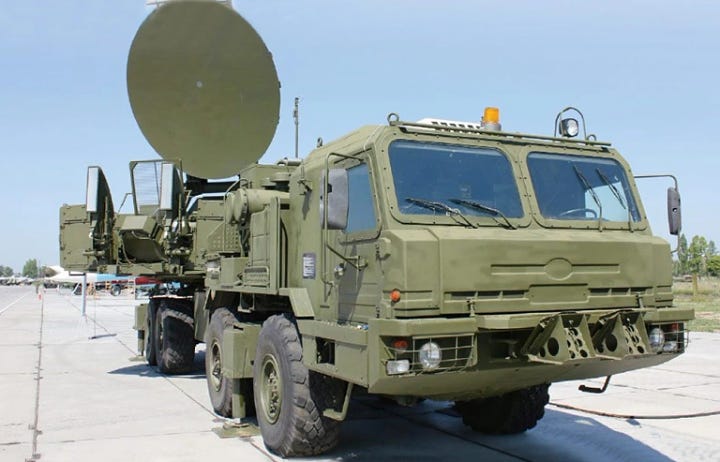
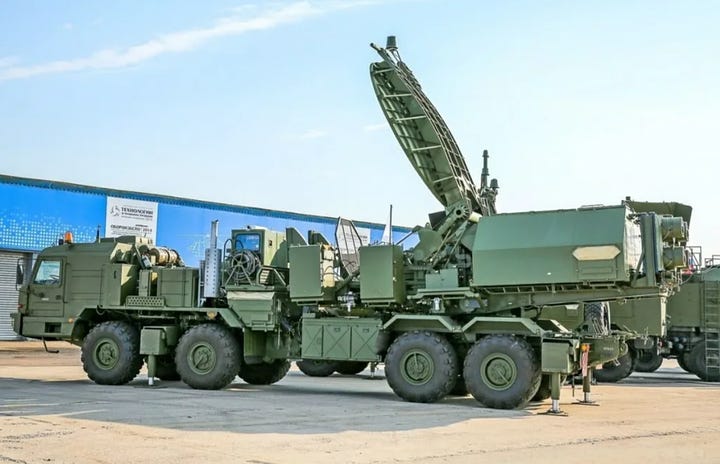
And the American ‘Leonidas’ HPM (High Powered Microwave) anti-drone system:
These systems work. But the ultimate issue still comes down to mass-producing enough of them to really matter. They’re costly and still have relatively short ranges which means to even make a dent against the drone saturation seen in Ukraine, you’d need them everywhere, hundreds and thousands of them. So again, not really “practical” yet, or at least that’s my assumption.
42.
Hi Simplicius,
Russia is due to have an election next year. Do you think Putin, like all politicians, will feel the need to demonstrate some kind of "big success" ahead of election, and if so - what do you think that could be. Thank you for what you do!
I think that would only be necessary if there was a credible electoral threat to Putin in terms of an opponent who actually stood a chance of dethroning him. Such a thing would hypothetically require Putin to make some demonstrative show as you suggested. But let’s take a brief look at the past Russian presidential elections since the year 2000:
2000 elections:
Putin - 53%
Zyuganov - 29%
Other guy - 6%
2004 elections:
Putin - 72%
Kharitonov - 14%
2008 elections:
Medvedev (under Putin’s political party) - 71%
Zyuganov - 18%
Zhirinovsky - 9%
2012 elections:
Putin - 64%
Zyuganov - 17%
Independent - 8%
2018 elections (changed to 6 year terms):
Putin - 78%
Grudinin - 12%
Zhirinovsky - 6%
So, what can we deduce here? Currently in the U.S., Trump has a 10% lead on Biden and it’s being reported by all media as a “massive” historical lead. In all his elections, no single opponent has ever even gotten within 30% or so of Putin. Most of them he was ahead by 50-60%. Even on the one election he wasn’t eligible, his party mate swept the election 60% ahead of his opponent.
Putin’s popularity is still historically high at the moment. We can therefore safely say that there is no credible threat to his re-election which means there is absolutely no need for him to stage any sort of show of power or contrived ‘triumph’ just to earn his spot.
So that’s basically my answer.
Sure we can still hypothesize that some naysayers or opponents could use the situation to criticize him. For instance, if the battlefield still appears in this positional, “stalemate”-seeming phase early next year, someone could point to that and say Putin’s war is not progressing. But this will have little and negligible effect for the aforementioned reasons that his popularity is just too high for some small critiques like that to matter. What is it going to do, make him win by 55% instead of 60% over his opponent?
I think at the moment, despite some seeming territorial gains by the AFU, the Russian public is well tuned in to the realities of the war. Many of them see telegram and news reports of how badly Ukraine is actually losing. Thus the Russian public and soldiers’ morale right now is very high and I don’t think even a criticism like that mentioned above would make them think twice.
This could only change if something ‘drastic’ happened before then, i.e. another ‘monumental’ AFU victory akin to Kherson or Kharkov from last year. Then perhaps Putin would really need to show something. But given that the likelihood of such a Ukrainian victory being low, I don’t think it’s something Putin will have to worry about.
43.
My question is who do you see being the biggest winner geopolitically from the current crisis? While it appears Russia’s SMO gambit will succeed, much like a Chess gambit material was sacrificed for position. There has been and will continue to be a cost. My pick would be India/Bharat. They will benefit from all Russia’s plentiful resources that used to supply europes economy. Furthermore, they provide a third option to Western or Chinese trade thar will not arouse emnity as the former will. Thoughts?
That is a good idea. In many ways it does feel like India is a very underrated silent beneficiary of all this, particularly given that the situation has only inflamed the Western crackdown on both Russia and China, leaving India to benefit from all sides simultaneously.
We can try to find the winner sort of apophatically by first seeing who are the biggest losers, which is clearly Europe—so European countries are definitely out.
Russia will be a big winner, but as you said they may lose a lot in the process as well, making it a sort of potential pyrrhic victory. That’s just to play devil’s advocate, though. Ultimately I still actually believe Russia will be the biggest winner simply because the things Russia will be gaining are nearly incalculable. No amount of losses can negate the capture of Crimea, Odessa, and potentially most of Ukraine as well as the military prowess that will emerge within Russia from the experience of this war.
India may end up burning themselves just like Turkey by “sitting on two chairs” and trying to play too many sides. That strategy often seems profitable in a ‘hands in all cookie jars’ game theory way, but ends up hurting you because instead of becoming a trusted senior partner with a powerful bloc, you end up as mere ‘arms length’ junior partner to several blocs, with marginal benefits from each. That’s because no one particular bloc ever trusts you too fully to invest or create truly groundbreaking partnerships and projects, so you’re left with a bunch of middling deals that never revolutionize or transform your country to a profound degree.
Turkey is suffering from this now. They can’t get the weapons systems they want from the West because the West doesn’t trust them, and the East too has to keep them somewhat at arms length.
Ultimately my pick remains Russia as the big winner at the end of the SMO for the following reasons:
Russia has used the SMO to basically liquidate and recycle all of its old Soviet era equipment, replacing it with the latest brand new stuff which will result in the army sporting all top of the line equipment not long after the end of the SMO as the factories will now be churning at extremely high rates only the latest designs.
When Russia emerges victorious, if it’s in decisive fashion, the whole world will view Russia as regaining its status of superpower. The optics of the victory will be that Russia defeated the combined force of NATO, widely known as the most powerful military alliance in history. This will be second only to the USSR defeating the 3rd Reich, which was then known as the most powerful fighting force of history. This will be a huge status boost for Russia on the global stage.
The saga of the SMO will have completely restructured Russia’s economy with import substitution and complete elimination of reliance on foreign enterprises. That means Russia will emerge stronger than ever into a potential golden era.
Russia’s armed forces will be considered the most seasoned, experienced, knowledgeable, and trained in the world by the end of the SMO. This could even boost Russia into the #1 spot in world standings for top military superpower. Particularly if the final end is a decisive one, the U.S./NATO will come out looking extremely weakened, with major prestige loss.
The newly nascent military pseudo-alliance between Russia, China, Iran, North Korea, etc., could turn into the de facto new global power bloc in the eyes of the world by the end of the SMO. Once we witness how the ‘well oiled machine’ operates apropos the weapons pipelines from Iran/NK/China to Russia, not just in pure materiel supply terms, but in the workflows of doctrine, design, theory, etc., it could potentially supplant NATO as the dominant military architecture on the global scene to which other countries will begin to flock.
Let’s not forget that when all is said and done, Russia will have added not only upwards of 10 million plus new citizens, but mass new territories, ports, etc., particularly some of the most fertile ground on earth not only for agriculture but minerals, rare earths, precious metals, etc. All of these will be a huge boon to the post-war Russian economy.
But yes, this is all contingent on if Russia can win decisively—which is the key word. But I believe it can, and it will.
44.
Mr. Simplicius, congrats again on the roll you remain on, and always appreciate these Mailbag opportunities.
I enjoyed your recent articles delving into the Central Banks, and BRICS. There's some interesting arguments against the BRICS success, articulated best by legend commodities trader Rick Rule. I'd like to hear you make an argument against the probabilities of the BRICS success, and go a bit more in depth of the pressure points the US/EU/NATO may use to thwart BRICS. i.e. like who may be murdered or poisoned etc. Mabey even, if you find it relevant, how the US/EU/NATO vs BRICS, Chinese, Russian, etc CBDC's fit into this holy hot mess!
Well, to look for BRICS fissures you can start with the fact that newly-joined Argentina may soon be out before it even joins, given that both of its leading opposition candidates for the soon-to-come presidential election (Javier Milei being one) are staunchly against BRICS and have promised to take Argentina out. Some have opined that this could weaken the image of BRICS, preventing future countries from wanting to join.
But to be honest, the entirety of potential future BRICS success lies in whether they can create the inter-BRICS currency successfully or not. Other than the currency, there is no real “BRICS”. Beyond that it’s nothing more than an organization that meets once a year and has no real treaties or ties beyond an implied/inferred sort of desire to work together and increase bilateral relations. An inter-BRICS currency is the only thing that can really cement these countries together and protect them against the toxicity of the rapidly declining Western financial system. So my answer is that everything really depends on that, but this currency is still years away from development.
Another way of saying this is that everything BRICS currently represents is sort of just a series of informal understandings and vague commitments. Creating this currency would really formalize things.
As for the cracks, I mentioned Argentina. If Javier Milei wins for instance, he’s enamored with the West. The other method is the U.S. of course tries its hardest to create cracks and pit the countries against each other, stoking various tensions in sensitive areas like for instance India and China’s rivalry. Putting Putin on the ICC’s wanted list, which puts uncomfortable pressures on BRICS countries leading to friction, like where Brazil, South Africa, etc., had to discuss whether they would “arrest Putin”, which creates really bad optics in the group. And of course, the plan partly worked as Putin couldn’t even attend the BRICS summit in South Africa, sending Lavrov instead. Though it may not have been a huge hit, it certainly would have made a far more powerful statement for Putin to have been there.
Also, the BRICS development bank (NDB) was even depressingly forced to honor U.S. sanctions against Russia, halting transactions in Russia, which is kind of a major embarrassment considering Russia is literally a key founding member of the bank, that put up collateral for it to even exist and function. Here’s how Business Insider laughed just a month or so ago:
As more BRICS countries are added in the future, it increases the BRICS’ global influence but at the same time vastly increases the opportunities for the U.S. to create new frictions between discordant countries.
As for poisoning anyone, I don’t think that’s an option as the BRICS is fairly decentralized and you can’t really do much harm to it by taking out one particular person, especially with the coming expansions. Plus in many of the cases, the person in charge of the countries is someone far more amenable to the West than the available options anyway, like Modi and Lula.
As for other pressure points, the chief pressure point from the U.S. is really economic sanctions, which is how they got to the NDB bank. The problem is, BRICS already started with some of the biggest and most powerful countries in the world, which are immune to sanctions, but the remaining aspirants on the list are smaller countries which are particularly vulnerable. That means on the next go around, as the next round of countries looks to join, the U.S. could threaten them (whether directly or asymmetrically) with sanctions to either make them think twice or end up destroying their economy such that their contribution to the BRICS is minimized to begin with.
And for reference here’s wikipedia’s list of next up countries:
Not to mention U.S. is already trying to ‘court’ the ones it can preemptively in order to sway them from eventually joining. Most notable on the list above is Vietnam, which U.S. suddenly began to really ‘woo’ recently by offering it F-16s:
Which might I mention is a major irony considering the F-16 was literally designed as a consequence of the U.S. airforce failures in the Vietnam War…
As for CBDCs—well the BRICS currency will likely be a digital one and therefore technically a CBDC. However, the future BRICS currency is not meant to be like the Euro, for common use by citizens in the BRICS countries. It’s meant only for the BRICS countries and governments themselves to clear each other’s trade balances, which means you can’t really use cash for that anyway, as those things are done digitally. So while the BRICS currency will be a digital bank currency, it will not affect citizens in that regard nor will citizens even have access to it.
However in general most countries around the world will be developing their own CBDCs from their own central banks, like that of Russia which I wrote about here. And those could very well turn down a dangerous alley in the same way Western CBDCs will, but we can’t really know for certain. The BRICS will not really represent a monolithic group identity structure or ideology the way the West tries to enforce on their own ‘New World Order’ style totalitarian system disguising itself as the EU, etc. That means different BRICS countries will likely use their systems differently, and some may use it more nefariously than others.
But it always comes down to the same principle in the end, which I mentioned last time when discussing this issue. The Western European ‘Old Nobility’ are the ones which have demonstrated a precedent of wanting to colonize and rule the world. The financial system they built, which everyone is currently forced to use against their will, is meant to be the linchpin that secures that dominance of the world. But no BRICS country has ever demonstrated a propensity or capacity to dominate, colonize, etc. That means while some of the countries may develop certain mechanisms like CBDCs to have stricter control over their citizens, it at least will not be a monolithic system meant to enslave the whole world under its yoke. And by the way, I’m talking about some of the more peripheral countries potentially doing this, not the main ones like Russia and China, anyway. Maybe Thailand in the future will do that—who knows. But it won’t have consequences for the whole globe in the same way the Western financial order tries to systematically enact.
45.
Saw this piece cited on Instapundit.
Any comment?
This article strikes me as very ineptly written, such that I can only shake my head at the garbled attempt at pretending to understand warfare.
First off, I have no idea who they’re even referring to when they say ‘Putin’s conscripts’.
It writes: “Russia’s relying on a massive amount of conscripts to win.” But then no mention is ever made of them again. What conscripts is Russia using? Conscripts are not allowed in the SMO—this is common knowledge. It somehow hamhandedly then tries to conflate it with the 300k reservists mobilized last year, but obviously those aren’t “conscripts.” Those are previously trained reservists who literally signed up to be called up.
I hardly know where to start. Literally every paragraph is completely offbase, I could spend a whole day picking this amateurish dreck apart. Putin switched from ‘mobile battalions’ to Soviet divisions because Russia found battalions aren’t “resilient” when met with strong resistance? No. Mobile BTGs were used in the phase of the war that called for them, which was the opening phase full of fast independent thunder-runs. After that, Russia switched to active defense to carry out a mass build up. In that phase, BTGs are unnecessary and ineffective.
The only part the article gets correctly are the vast social benefits offered by the Russian government to enlisted troops or bereaved families, etc.
The one important point the article does bring up in allowing me to debunk it is the common trope about Russia’s ethnic regions being disproportionately affected by the war. It’s a repeated syllogism that pro-Ukrainians use to say that Russia is recruiting only from poor border regions, like Tuva, Altai, and Buryatia and that these regions have disproportionate losses compared to ‘cosmopolitan’ ethnic Russian districts like Moscow and St. Petersburg.
The issue is, this does happen but only as a natural consequence of the laws of economics. You see, poorer regions in every country typically have a higher percentage of people joining the military for the competitive pay and social benefits. Additionally, in Russia you get exempted from conscription—and therefore being a reservist who can be mobilized—for attending higher education institutes. In poorer regions, less people go to university and therefore less are exempt, which means a disproportionate amount of them end up in the reservist pool compared to Moscow where many of the cosmopolitans get out of service by virtue of attending graduate school at higher rates. This isn’t a “diabolical plot” of Putin’s, this is how simple socio-economics works.
And by the way, guess what? It’s even far worse in the U.S. Have you seen what the U.S. military looks like recently? Standard new class in the Army/Marines:
You notice a pattern there? It’s typically poor minorities from the American south that join the military at this point.
But you know what the big difference is? The Russian ethnic minorities are extremely patriotic and proud, almost to a fanatical fault, and even more so—believe it or not—than most ‘ethnic Russians’ themselves. They have a very proud culture in places like Tuva and Altai where, to many of them, the military is everything. Not to mention they are gigantic fans of Shoigu (Tuvan) and the MOD in general. His visage is plastered everywhere and celebrated “down there”:
Or for that matter just look at how the people of Far East Sakha Republic greeted their native heroes recently, the tank crewmen of the famous ‘Alyosha’ tank which destroyed a column of Ukrainian armor:
These people are extremely patriotic about the military, far more so per capita than the rich cosmopolitan regions who have more bourgeoisie things to worry about. In short, these people are proud to fight for Russia, and no amount of Western spin about their ‘disproportionate’ participation in the conflict can change that.
46.
Simp…you have probably already compiled your Q&A but I did want to ask a couple. Maybe it can go on the next one if you see it.
Col MacGregor states the Ukrainian losses to be roughly 400k total. I am pretty confident in the 70k loss estimate since the counter offensive began. Putin, himself trumpeted that I believe. Question is how in the hell are they even getting soldiers to mobilize with such enormous KIA and/or wounded? Do you think they are threatening their families with torture perhaps? I can’t imagine the infantry soldiers not hatching a plan to counter attack the people forcing them to jump into the grinder. That is one way I see out of this.
The other way out would be if EU/NATO/vassal states started walking away from the US. Putting this country on an island might avert serious escalation. Saw the mural in Germany (I think) with Zelensky eating a Ukie Soldier’s arm. This is a good sign and powerful imagery IMO. Do you see any fracturing taking place soon? Maybe this winter?
Thanks for all you do…am going to like my own comment so I can find it a bit easier access if I need to re-submit.
I think the mobilization is definitely happening under greater and greater duress. We see many videos daily showing much more tension and friction in the streets, vis a vis the commissars etc. The commissars themselves are getting fed up to a point. They’re even starting to carry out weird extortion fraud:
However, one of the most popular methods that most people don’t know about, which I’ve particularly seen recently many times, as described by captured POWs, is as follows. They basically are lied to and convinced to join some Territorial Defense unit, under the impression that they will only be serving in their local city, basically as a glorified MP or border guard of sorts. But then once they’re “trained” and suited up, they get unceremoniously carted to the front and launched into a meat-assault group. And that’s it—at that point they can’t turn back.
Truth is, there’s a long tradition of recruiter lying. That’s standard MO for the U.S. military where recruiters must meet monthly quotas and will say damn near anything to get you to sign up, including outright lies, which you can’t do anything about once you sign that paper. In the AFU it’s just ratcheted up a few hundred notches.
That being said, I think there’s still a bit of normalcy bias in the population where they show up if summoned because they think “it won’t be them” that gets brutally blown up, etc. There’s always that internal hope that the front is no where near as bad as they say, or that you won’t see real action, etc. Another trick is many have said that they signed up to something like artillery or as a tanker, where they assume they’ll be safe in the “rear”, firing from closed positions, but then got moved to infantry assault. With that said, this happens on the Russian side too, though it’s usually more voluntary—but not always.
As for the fracture, there definitely appears to be more and more disagreement under the surface. You have to really learn to read between the lines in geopolitics to understand how deep it runs. There’s a surface layer in the news headlines and such, but there are other very subtle things only the keen-eyed will see.
One of those is, since the beginning of the conflict, there was a game of “you go first” between U.S. and Germany in particular. They tried to pass it off as a bit of diplomatic rigamarole or posturing, but in reality this exemplified a deep reluctance from Western nations to commit themselves to the conflict without someone else “putting skin in the game” first. The U.S. really got one up on Germany and UK by pulling the ol’ switcheroo—promising the Abrams to force the Leopard/Challenger into the frying pan first, only to pull the Abrams out with various phony delays.
Now they’ve had no choice but to finally put them in, but even so they managed to downgrade them to M1A1s to salvage the prestige of their mainline M1A2s.
But now the same game is going on not only with fighter jets but even missiles. Germany promised the Taurus to tempt UK/France to send the Storm Shadow/Scalp, but has again pulled it out, continually vacillating. It was said that the only reason Biden finally caved with the ATACMS was to pressure Germany (via guilt trip, etc.) to finally commit the Taurus. But then Biden keeps pulling the ATACMS back, which again caused Germany to announce a new reneg on the Taurus.
It’s a circus. All this back and forth demonstrates there’s huge reluctance on the ‘partners’ to really overcommit, and everything Stoltenberg blathers in front of cameras is just face-saving boilerplate meant to give the appearance of solidarity.
I think I posted a German poll before that showed the majority of the populace does not actually support Ukraine. These couple new headlines also capture the moment:
But will it all lead to a fracture in the near future? What it looks like to me is—following what I said above—none of the main countries want to appear to be the first to buckle and give up. They don’t want that ‘stain’ on their legacy and record. So each country is very subtly jostling in and out trying to suss out when the ‘leader’ is going to buckle and run, so that they themselves can clear out without the humiliating consequences.
You ever seen those videos of a group of dogs or other animals which circle some larger prey, but while baying and howling, putting on a strong exterior, they are constantly jumping backwards, and side-eying their leader to see if and when he turns tail to run. As soon as he does, despite how tough they acted while barking and baying, they quickly turn and flee with him.
That’s what the West is currently doing. None of the countries want to be the first, but they are starting to sense weakness from their leader, America, with the new funding downgrades currently happening in Congress. If that should stick, then I could see the other countries breathing a sigh of relief and immediately snuffing their own support for Ukraine because none of them truly seem to want to do it anymore—it’s become far too economically painful, and militarily humiliating to them.
I do think next year there’s a strong chance for this to happen, and it will likely cause major ruptures within the countries themselves as the various factions fight each other over staying or going. In fact, as you’ve seen, Poland already has paved the way by being the first to boldly assert the preeminence of its own policy and safety over that of endlessly supporting Ukraine to its own detriment. We should see more and more of this into next year until it comes to a head, but it’s still not certain that the factions who want out will absolutely win within each country. However I do give it a strong chance, particularly if things look really hopeless by next spring or so, and the ball is in Russia’s court to make that happen.
47.
Two big questions that overlap with one similar topic which I’ll combine:
Neither side has been able to achieve a successful advance since last summer. The war seems stalemated despite the the Russians' current superiority in most aspects - e.g., air power, artillery stocks, armored combat vehicles (tanks etc.), and military infrastructure (medical care, material resupply, etc.).
As far as I can discern, the Russians don't seem to have an answer to the combination of HIMARS and the Western ISR necessary to strike accurately. Do you see any way for Russia's armed forces to erase the long-range artillery advantage that Ukraine currently seems to enjoy? Or are we left with no alternative but a war of attrition until one side or the other has had enough of this bloodshed? Or do you think this supposition is incorrect - i.e. that Ukraine doesn't have long-range artillery superiority - and if so, what do you think is the root cause of Russia's inability to break though, even in places along the northern front like Lyman, where they seem to have numerical superiority?
The topic of artillery war is something I’ve harped on about a lot lately. In brief, it comes down to: Ukraine has a miniscule amount of special ammunition like the new Vulcan rounds that are longer ranged (40-70km) than Russia’s top-end rounds, but Russia has a far larger amount of general base systems which have better ranges than Ukraine’s most numerous base systems. This means as a generality, Russia has the advantage in artillery.
This seems to be a difficult concept for many to grasp, so let me see if I can help visualize it.
Let’s say hypothetically both sides fire 10,000 shells per day each. Let’s say all 10,000 of the ones Russia fires have a range of 30km. Now let’s say 9,000 of the ones Ukraine fires have a range of 20km, but 1,000 of Ukraine’s have a range of 40km.
Which side has the advantage?
It’s clear that for 90% of the firing, Russia will be outranging Ukraine, and inturn will be outranged in 10% of the cases. I’ve explained before that the standard M107 and M795 NATO rounds that Ukraine uses 98% of the times on their M777s has a shorter range than the standard OF45/61+ Russian rounds used on their 2A65s, 2A36s, etc.
The M777s are Ukraine’s bread and butter most numerous system (150-200). They received a few dozen French Caesars that can hit a tad farther with regular shells than Russia’s main bread and butter howitzers. However Russia has other ‘specialty’ systems like the 2S5 and 2S7s which can hit even farther than Caesars—and Russia has much more of those than Ukraine has of Caesars. So again, Ukraine is at a disadvantage.
Additionally, Russian Lancets now account for the majority of “counter-battery” kills and Ukraine has nothing to match that. Comparing asymmetrically we can say Ukraine has HIMARs which is doing what Russian Lancets are doing, just in a different way. Thus we can say they’re perhaps evenly matched in that one asymmetric subcategory. Though Russia has BM-30 Smerch which is superior to HIMARS in every way: much more powerful rocket of 300mm vs. 227mm, much greater range of 120km vs. 80km+. Russia simply hasn’t produced many GMLRS guided Smerch rockets until recently, but now there’s been an uptick of Russia reportedly using Smerch in the same manner as the HIMARs, long range guided sniping of rear assets—except Smerch packs a much larger punch.
That being said, just because Russia has the advantage or better systems doesn’t mean they can stop the systems Ukraine has. So as you’ve pointed out, the HIMARS has been having some successes, though it comes in spurts and lately it’s once again seems to have been neutralized.
Ukraine exaggerates the success of HIMARS by saving up about one month’s worth of footage, then releasing it all at once as a highlight reel that shows 4-5 spectacular hits at once. This gives the false impression that HIMARS is dominating the battlefield when in reality it’s the only success in weeks. The typical short memories and attention spans of most observers leaves them forgetting about the 3-4 week gaps in between those releases, where HIMARS are not seen doing anything. That’s because they have maybe one decent hit per week, and they save those up into a monthly reel. It’s just more Ukrainian sleight of hand tactics.
But you’re right in the fact that Russia is forced to fight with hand behind its back as Ukrainian assets like HIMARS are able to freely use Western ISR while Russia can’t strike those ISR capabilities in the same way they would if there was an outright open war against the West. That’s why I’ve pointed out before that Ukraine currently enjoys far more advantages than the West/NATO itself would enjoy were they to face Russia directly.
That being said, Russia is still doing far more damage to Ukraine’s artillery and other assets than Ukraine’s counter-battery or HIMARS are doing. We’ve seen one highlight reel in the past month of HIMARS striking a few Russian anti-air assets, yet since that time there’s been over a dozen Ukrainian air defense, radars, etc., struck by Russia—everything from Osas to Strelas to Avengers to Stormers to both AN/TPQ-36/50 (and here, and here, and here)as well as P-18s and ST-68UM radars for S-300, and many, many more I can’t even be bothered to look for.
That’s just in highly significant radar and anti-air assets, the list for counter-battery would be endless as there are literally half a dozen to a dozen destroyed each day. In fact, as of this writing in the past 24 hour period, 3 M777s were hit on video and one Ukrainian Giatsint howitzer. And these systems are far more valuable and precious to Ukraine than the equivalents are to Russia, which has many times more artillery than Ukraine and all of its Western partners combined.
For instance, just for last week alone the official count was nearly 40 Ukrainian artillery pieces destroyed. That averages to nearly 6 pieces per day. Granted, to keep things fair, here is one chart from a pro-Ukrainian source claiming to chart Russian monthly artillery losses:
This is from a pro-Ukrainian source and yet the most they are coming up with is 30-40 lost pieces per month, and that’s at the worst, most intense months. The slowest ones have as little as 14 total destroyed. So compare Ukraine’s last week that saw 40 field artillery pieces destroyed in one week, to Russia losing 23 for the entire current month of September as per the above. Does it sound like Ukraine is winning the artillery war?
Of course the UA losses are from an official Russian report. If you check Oryx, he has UA way ahead with Russia registering more artillery losses. So it’s all about who you want to believe. I personally believe what I see, and I see more Ukrainian losses happening on a daily basis. Ultimately, even if the losses are 1:1, or even 2:1 in Ukraine’s favor, it’s an attrition Ukraine can’t win.
And here’s the second question, which relates to the second part of the first question:
Hi Simplicius, probably the most obvious but hardest to answer: wtf is Russia going to with Western Ukraine? I don’t think they have the desire and manpower to occupy the land mass between the Polish border and the Dnjepr. Esp with a population that was already vehemently anti-Russian before the war. If they install a more reasonable neutral government, will there not be a perpetual conflict with the local population with terrorism attacks on the daily? (Lots of weapons that are unaccounted for). Would they not be forced to install an Israeli-like apartheids-regime? How can they avoid getting sucked into a decades-long quagmire and if they are, isn’t the US getting exactly what it wanted at relatively low cost? Thanks, you’re the best.
I know I’m breaking the rules, just scrap the one below and answer this one, please. A lot of alt media (Duran, McGregor, Ritter, etc) keep saying that Russia has all but won the war. After Bakhmut it was a straight shoot to Slavyansk and they’d be at the gates of Kiev in weeks if not days. However, they haven’t managed to capture towns like Belagorovka (sp) or Avdievka, even though they are using it to shell civilians in Donetsk. Is the Russian army not as capable as some wish to believe, are they just not willing to lose the soldiers it would take to capture these towns, or is the Ukrainian army stronge (in these fortified areas) than they are willing to admit? They would prob say it’s all 5d chess from Putin, but I don’t buy it. Can you shed some light on this? Thanks!
I’ll answer the first briefly:
No, they won’t occupy the West. Russia’s plan is to collapse the AFU into surrender at which point Russian forces can de facto control the West at least insofar as enforcing demilitarization of it, i.e. tearing down the bases, and securing far western borders to make sure no NATO arms come in, etc.
Will these “peace keeping” forces be under constant partisan or insurgent attack? Some people think so but I doubt it. The common example is to look at Chechnya. Only a few years after Russia pacified the enclave it has become completely free of any conflict or lingering insurgency. Ultimately the plan would probably be to have a newly trained and carefully vetted native Ukrainian force do its own patrolling and de-militarization enforcement with only light Russian/CSTO oversight. That’s mostly how they can avoid the ‘quagmire’ situation—it doesn’t need to be Russia’s own troops and funds but Ukraine’s resources that will be used in this enforcement, as part of reparations.
As to the second question. To be honest, the sheer scope of this war is something that none of the aforementioned figures have ever personally witnessed. In the Gulf War, Iraqi military deaths may have been as low as 20k or under total. I outlined recently how, if it’s true that Ukraine’s current KIA alone is already in the 300-500k range, that would mean Ukraine is on track to potentially match or beat their WW2 casualty figures of 1.6M military dead.
That’s to point out that even figures like MacGregor simply don’t have the experience of such a conflict, and so their evaluations of it may be premature. He may be thinking: “Well, hell, we got those Iraqis to surrender with 30-50k. These Ukrainians are already at ten times that, so they must be nearly done.” Or some variation thereof. Or, he may very well be right—i.e. Ukraine may totally collapse next year and his evaluations will end up looking much better in hindsight.
Also, allow me to note that prior to Wagner’s dismissal from the theater, the ‘straight shot to Slavyansk’ was actually a semi-realistic possibility. The AFU was greatly degraded in that region and Wagner was ready to lurch forward but fate intervened.
However, you do bring up a good point in that there are certain towns like Avdeevka which are by all appearances virtually surrounded, and yet Russia has still not been able to pull the trigger and capture them. Part of the reason for that, in Avdeevka’s case, is that the units stationed there are mostly DPR and territorial defense style weaker units. The actual Russian army proper is not even there. Of course one can then ask, well why doesn’t Russia send reinforcement units there to pincer and capture it. The easy answer would be because it doesn’t have any to currently spare. They now have over 300k newly raised men, most of which apparently are not committed to the conflict at all—but they appear to be deliberately held back in reserve for now.
Furthermore, the general answer is that right now Russia is not interested in launching a true offensive or being in an offensive posture. Even Shoigu recently confirmed the current posture is officially active defense. They advance opportunistically, of course, when the AFU offers them opportunities they can’t pass up, in areas where UA is particularly weak. But in general right now Russia simply does not appear interested in advancing at all—it’s just not in the parameters of the current phase they’ve decided on prosecuting.
This is not only because for now they’re happy to continue stockpiling ammo for the future, but they recognize the utter desperation gripping the AFU in needing some sort of advancement of their own. As such, they know they can take advantage of that by basically setting a giant defensive trap for them, in the manner of Napoleon’s “Never interrupt your enemy when he’s making a mistake.”
But as to your main question of: “Is the Russian army not as capable as some wish to believe?”
You’re referring to offensive capacity here. Russia clearly showed its defensive capabilities during the counteroffensive thus far. So you’re really asking about its offensive capabilities. To answer that fairly, we have to ask, have you seen Russia’s offensive capabilities demonstrated yet in order to be a fair judge of that question?
The answer is no: Russia has not yet even launched an offensive in recent times.
If they had launched a major offensive somewhere and got very badly stopped, then perhaps you could have claim to saying Russia is incapable. But so far, everything Russia has actually tried to take in force, they’ve taken. Bakhmut was the most recent, and it fell. Some argue earlier in the year, Russia failed in Ugledar. But this wasn’t an actual major concerted effort to capture it. This was literally one 155th Marine unit simply trying to entrench themselves in the dachas around the town.
When you see Russia actually attempt to take something, you’ll know it. To do that they surround the entire urban area first, with major forces. That’s what happened in Mariupol and then Lisichansk-Severodonetsk, and slowly in Bakhmut. That type of concerted offensive effort has not happened since. So what does that tell you?
That Russia has not yet even attempted a subsequent major offensive action. When it does attempt one, you’ll know it. Before then, everything you’re seeing is just minor regional ‘active defense’, where they will doctrinally counter-attack and take a little territory just to create buffers and keep the enemy on his toes, but not actually go on offensive in a concerted and doctrinal manner.
The thing is, you don’t need to use the “5d” explanation to understand what’s going on. What is 5-dimensional about playing simple defense in order to exhaust and deplete your opponent? That’s literally 1-dimensional. There’s nothing mystical or hard to grasp about it, but pro-Ukrainians or 6th columnists attempt to spin it into some 5d narrative as if Putin is attempting some highly complex fake out. There’s nothing complex about it, and there’s no fake. Shoigu literally spelled out in public: “Our current task is to defend and destroy as much of the enemy’s equipment as possible.” What’s 5d about that?
Is it taking a little too long for some people’s liking? Is it inconveniencing them by interfering with their upcoming NBA season schedule? Well, too bad. Russia is not on anyone’s timeline. Russia is enjoying its current posture. It’s massively building up its forces while inflicting horrific 10:1 to 20:1 losses on the enemy. For those types of loss ratios, any general in history would gladly have taken as much time as needed to sit there and blast away his enemy in a glorified turkey shoot. It’s a strategic gift on a silver platter.
You see daily that it’s the West that’s crumbling, not only economically, but their coalition, their solidarity and endurance for the conflict. Russia is showing not even the slightest of such cracks, neither societally nor economically or politically. Everything is as it was. So what’s the issue then? Why should Russia hurry when its enemies are literally collapsing before its eyes in every domain?
So my answer to you is that Russia is very happy to just sit back and slowly lead the AFU into firetraps while bleeding them dry, exhausting them and their allies. Believe it or not, they can do this even for another year or two just like so, without having to advance an inch.
Ultimately though, we have to wait and see how they do on the offensive once they decide to do so. My point was merely to demonstrate that one cannot logically criticize their perceived offensive shortcomings when you haven’t even seen their offensive yet. But that offensive does not have to come soon, and I don’t think it will because in strategy you should never give up a stronger position for a weaker one just for the sake of some arbitrary parameter. Russia should stop killing the AFU 20:1 and instead transition to a 3:1 offensive ratio all because some people on the internet are getting impatient? That’s just not how it works.
As long as Ukraine continues to hand the fate of its entire armed forces to Russia on such an easy, tempting silver platter, Russia is happy to sit back and continue blowing them up. When Ukraine is finally exhausted and is forced to stop, then Russia may activate. However, given Zelensky’s recent statements, he’s fully aware of this. He openly said exactly that—that he’s afraid stopping will cause Russia to ‘smell blood’ and pounce on them, so he will continue plodding forward at all costs.
With such an advantageous posture from your opponent, why change anything?
The only argument to that is usually: “But they can keep sending cannon-fodder forever.” I said before, to some extent that could be true—but they don’t have infinite armor/materiel, nor does the West. More and more Ukraine is relegated to just meat-assaults without any vehicles, and that means their corporal losses are skyrocketing. Strategically speaking, you really can’t be in a more ideal position than Russia is currently enjoying, which means they’ll milk it for as long as the cow wills.
If you enjoyed the read, I would greatly appreciate if you subscribed to a monthly/yearly pledge to support my work, so that I may continue providing you with detailed, incisive reports like this one.
Alternatively, you can tip here: Tip Jar







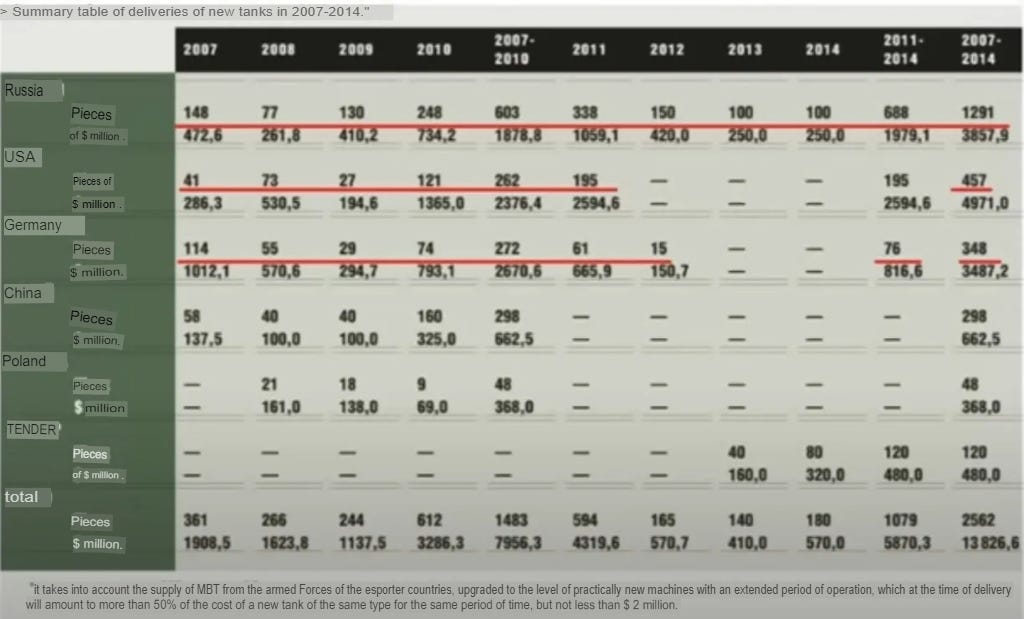
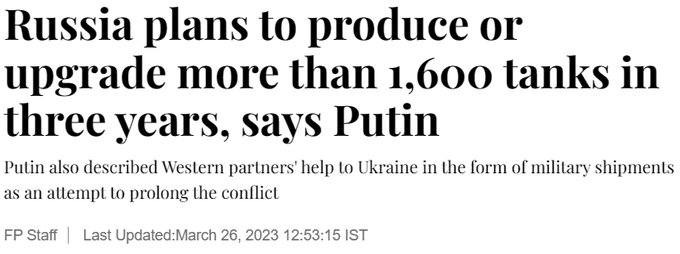




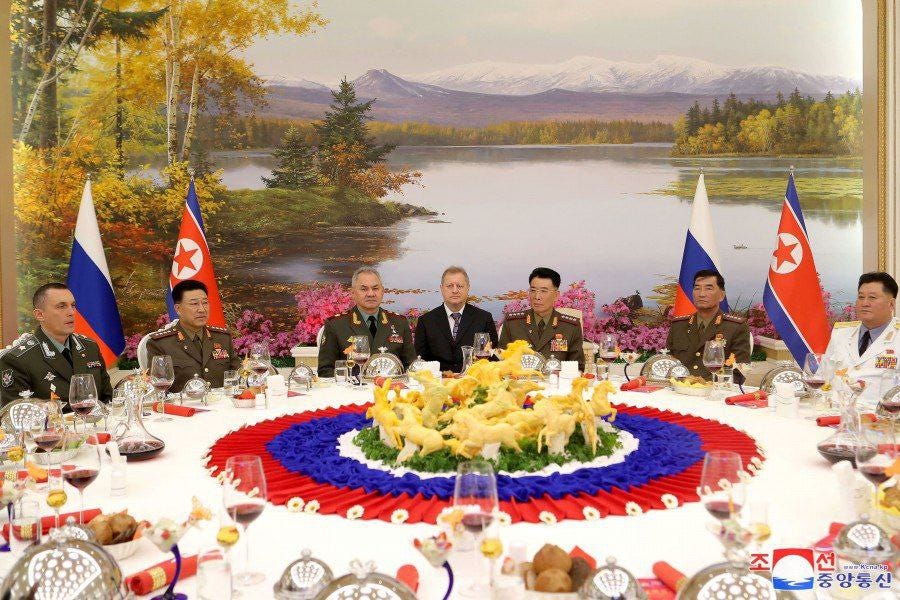
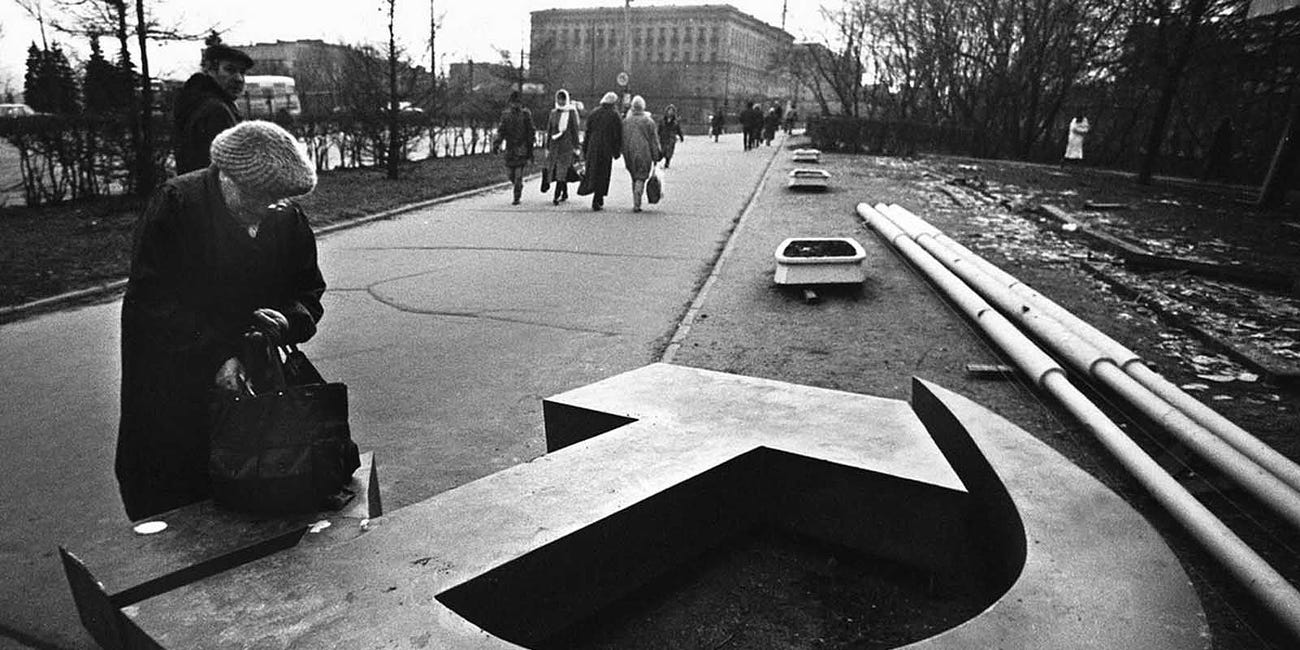
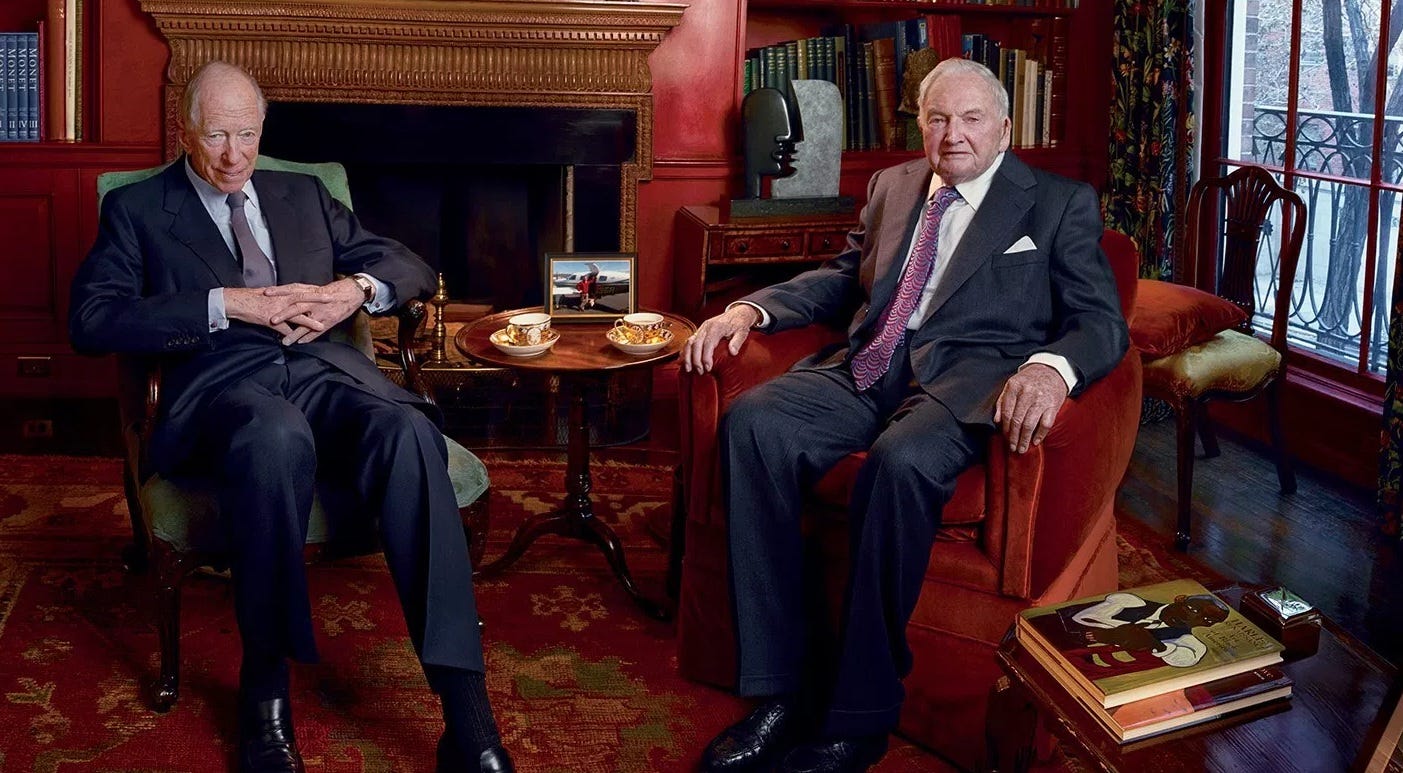
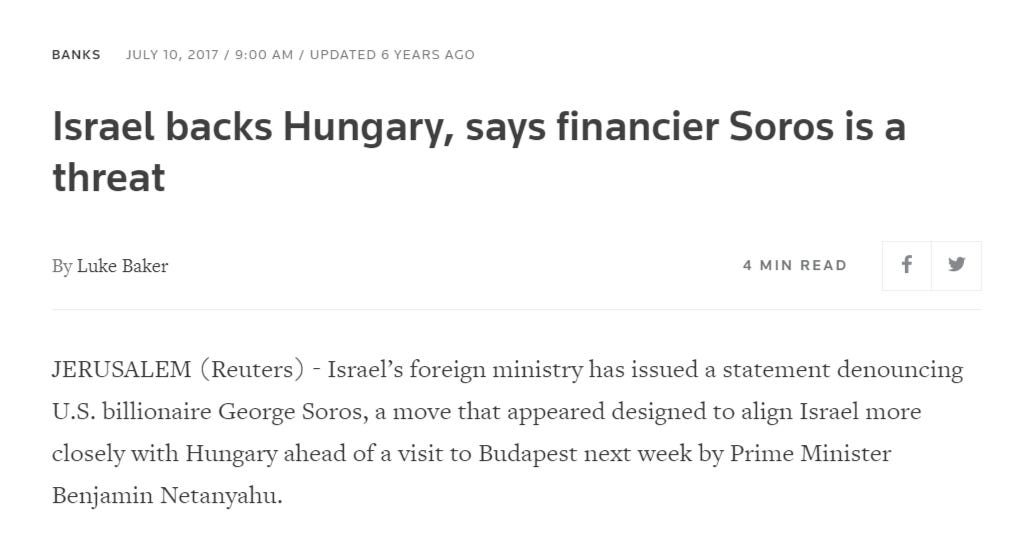
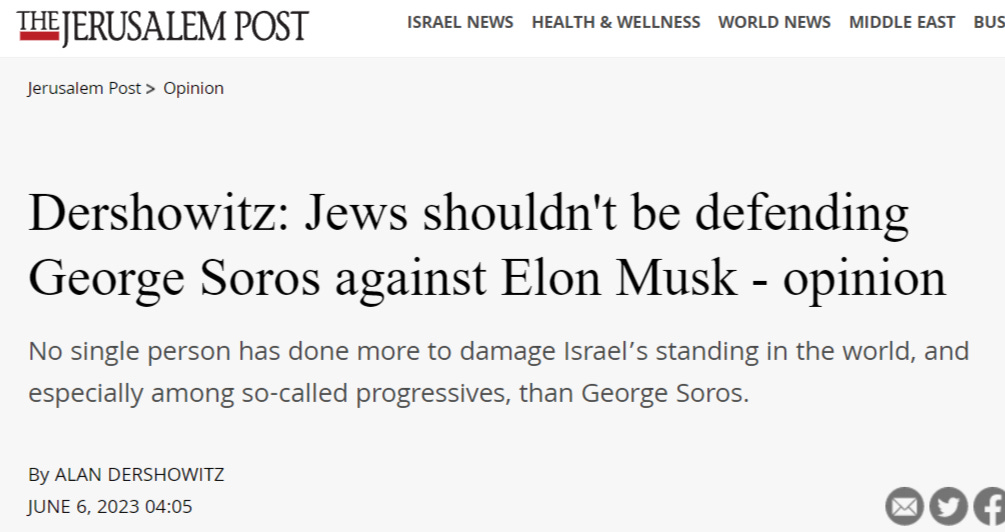
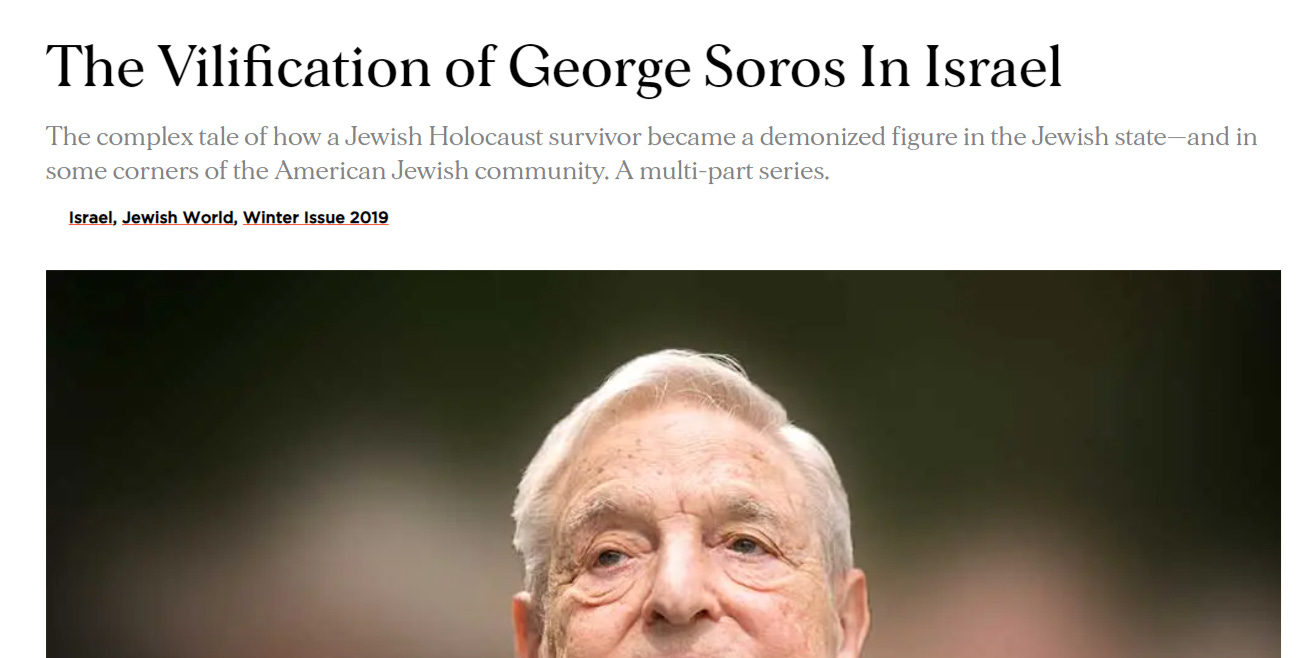





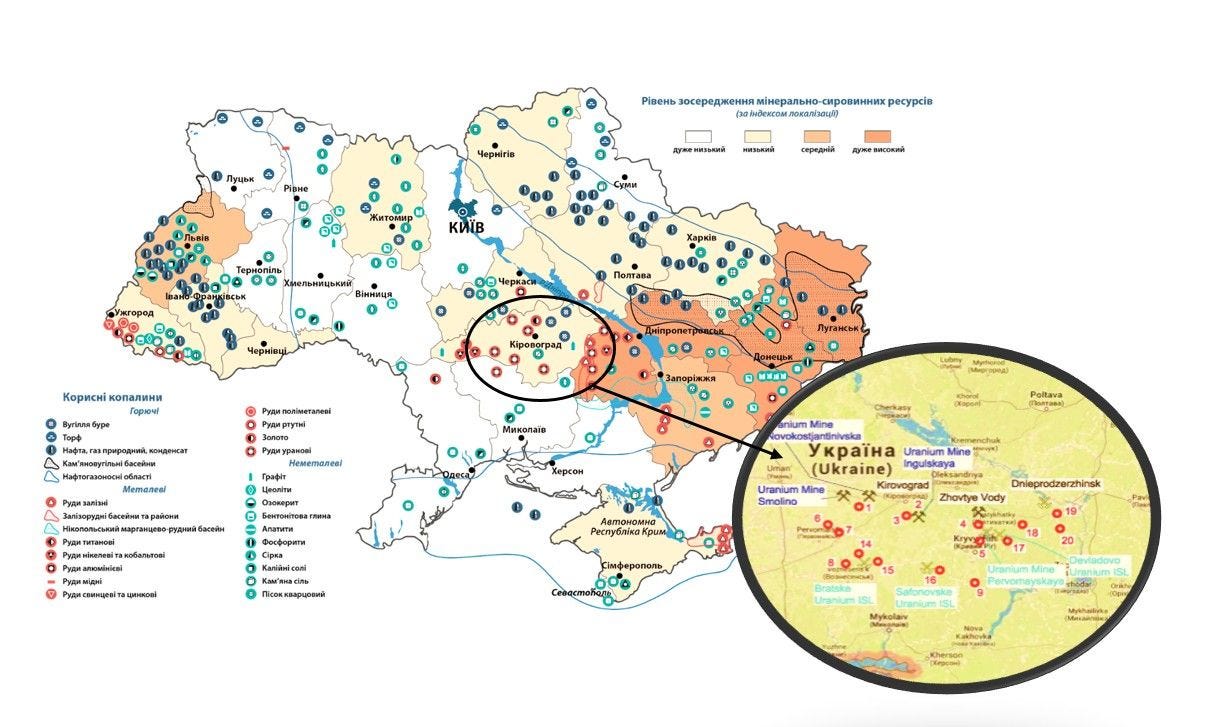

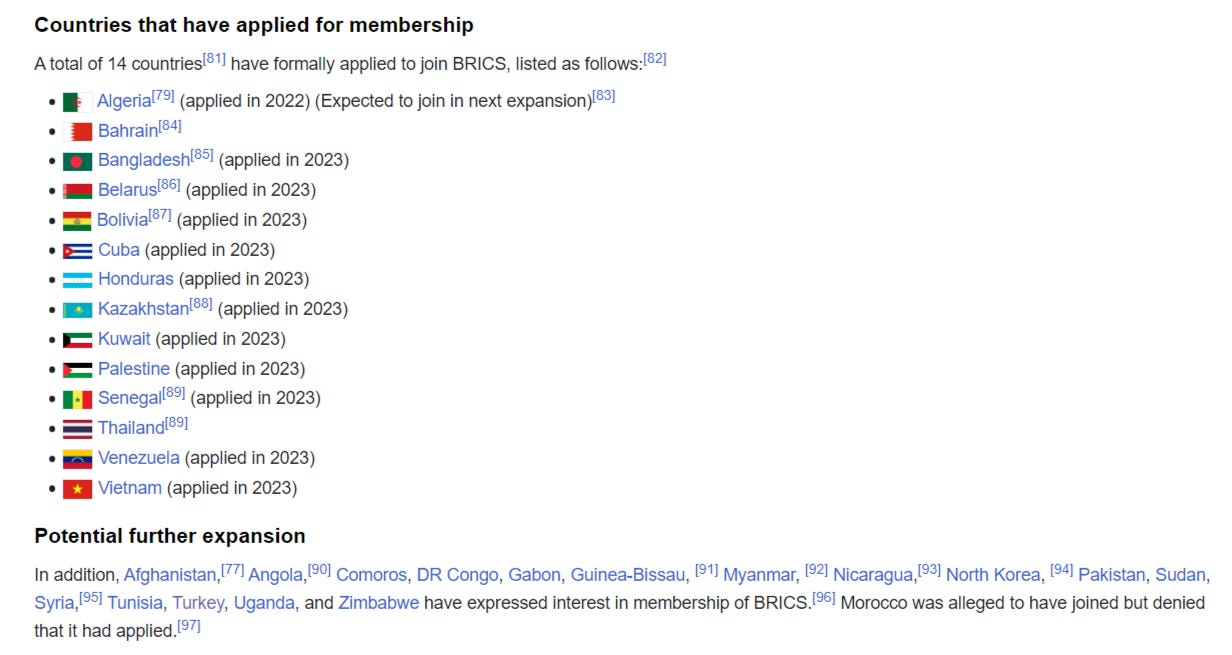
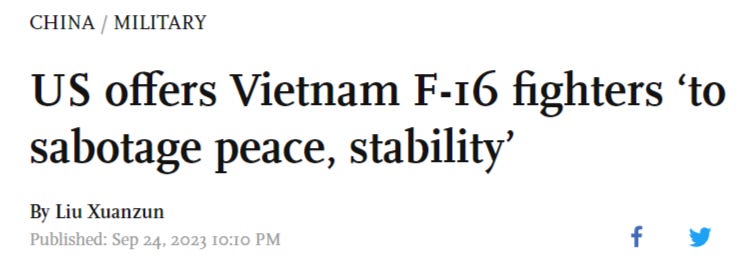

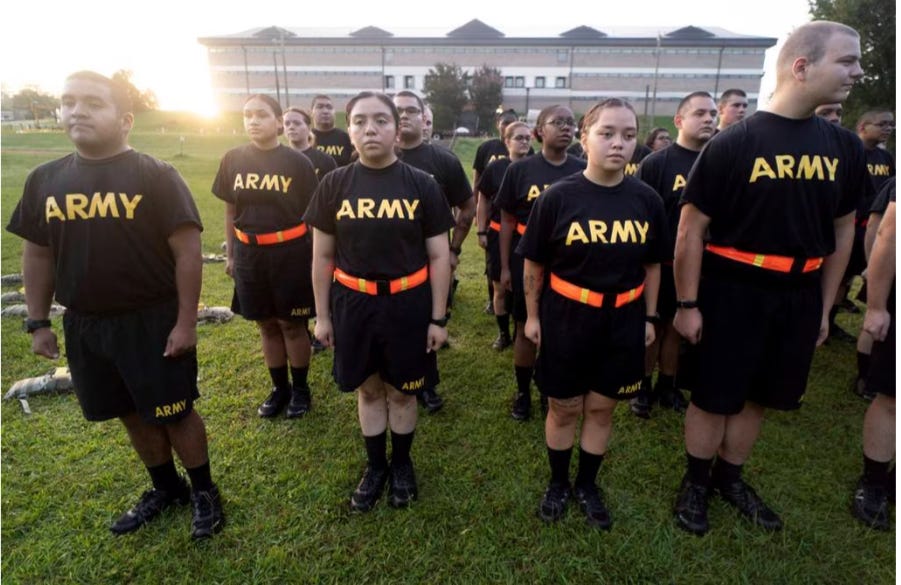

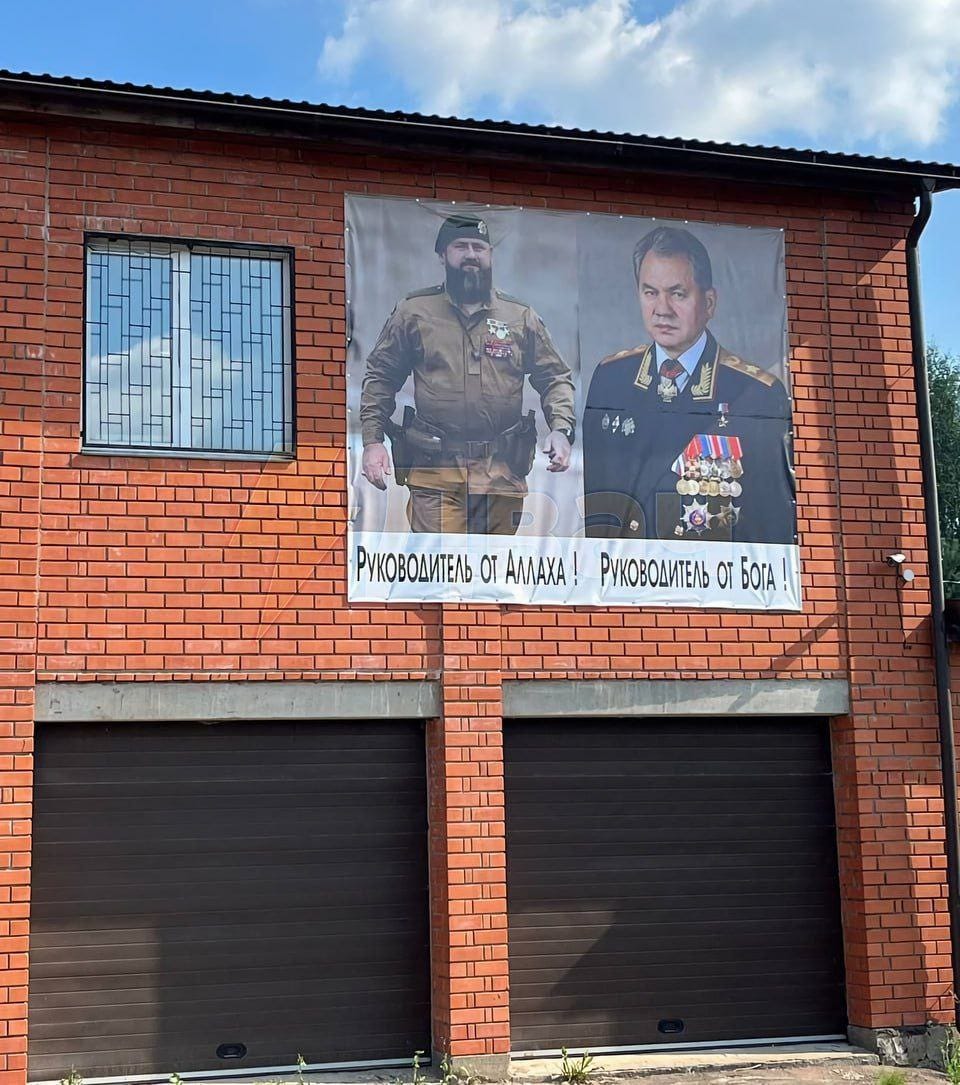
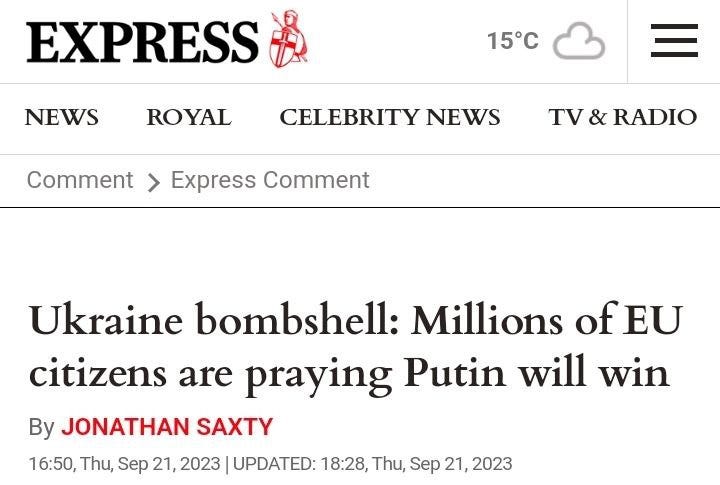

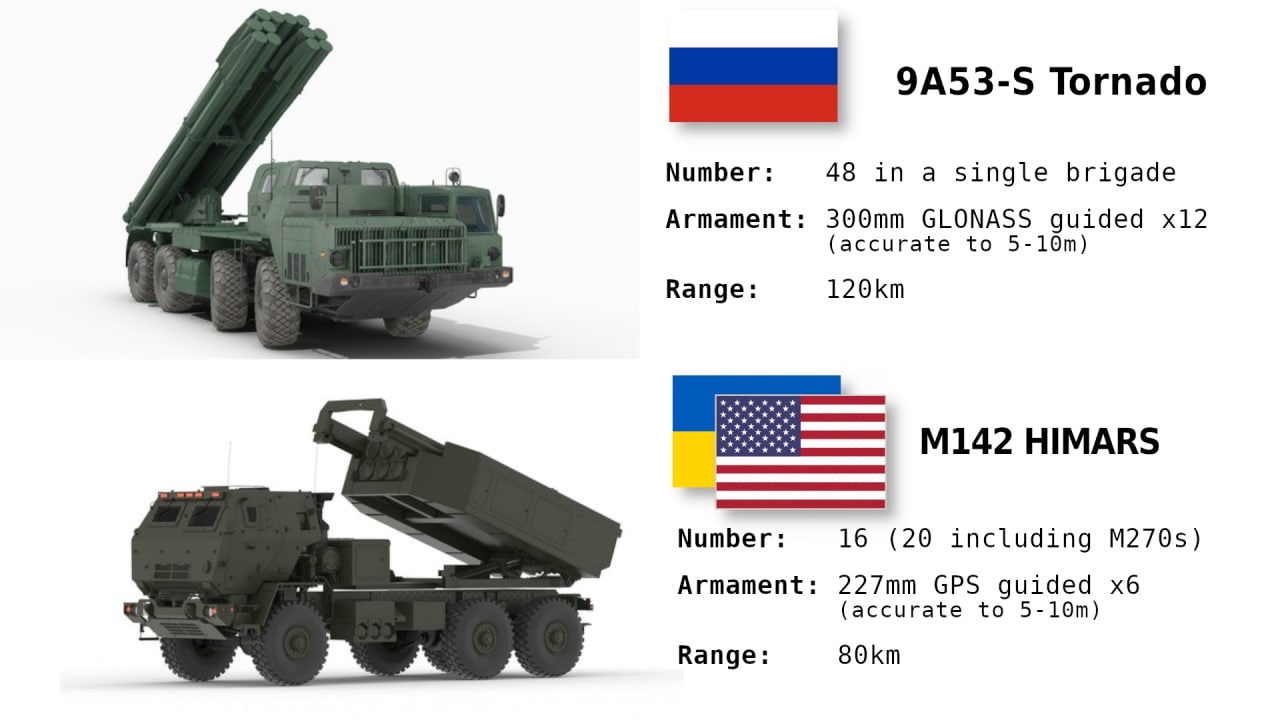

As far as private clinics, in my Russian city they are only for specialties: blood work beyond what the public hospitals offer (e.g. Israeli, American, etc. screenings that aren't in the approved list for the public system), infertility, cosmetic surgery, etc. There is a "western" private general hospital but it catered mostly to foreigners and had a pay-for-service / western insurance model. Dentist offices are now almost all private. They provide the required services on the public plan (mostly pulling teeth I think) and normal dental care for pay.
Primary care is done in-home. There are no general hospitals, and hospitals are much smaller than their U.S. counterparts. There is a maternity hospital on my street, and a cardiac care hospital not far away that specializes in heart surgeries and rehabilitation. If you are sick, you call to a facility based on where you live. We have a lot more ambulances than U.S. cities. They are crewed with a physician. Response times are reasonable. For example, if your child is sick, they'll ask you their temperature when you call in (and people know to do so beforehand). If it is a high temperature, a GP will visit you in your home within usually four to six hours. Emergency situations have responses similar to other western countries.
Russian people as a whole are better informed about first response care than Americans in my experience. Everyone has classes in school on how to do CPR, how to recognize different medical problems, and what to do.
Russian hospitals are more holistic than western ones I think. I had a friend who had a stroke and required an operation here. I also had a family member who had a heart operation in the U.S., and visited them in the hospital there. The Russian hospital recovery room was organized for visiting. There was a tea pot and cups, and chairs to sit on during visits. There were a lot of house plants at the end of the hallway in the window. There is an effort to make recovery areas feel like home. The U.S. hospital was very sterile. The idea of a house plant in the patient room hallways there is inconceivable to me.
On quality and paying for service, there's one thing about corruption in Russia that I think westerners do not understand. It is always possible to do something by the normal way. By that I mean for example, some years ago I was smoking a cigarette too close to the entrance of a metro (underground subway train) station. You must be at least 20 meters or something from the entrance. The station officer came and told me that, and ordered me to come into the police station inside. There was a fine for the offense. I gave my passport. The normal way to pay is that the fine (about $100) is recorded against your passport number. If you ignore it, you will eventually have problems: when you try and renew your passport, when you try and go through passport control, etc. The officer also offered a "quick" way: pay the same fine in cash, and it wouldn't be recorded. Is it corruption? Theoretically, no, the officer could apply the payment in the system (there is a unified payment system for utility bills, speeding fines, and everything else). All corruption in Russia is generally like this (the normal way is possible).
And so it is with medical care. There are lots of extras you can pay for if you need a procedure done, but you don't need to pay any extra. Examples are a single room for recovery, perhaps lots of other things. The general idea is that people do pay for operations as "extras". A friend of mine's grandmother needed serious and extensive surgery last year, and my friend paid some thousands of dollars (USD) extra for the care. But the grandmother would have gotten adequate care without it. Part of it is that everybody knows that doctors and nurses are seriously underpaid in the public health system, and so people generally offer money in order to make sure their care is as attentive as possible.
But there are several surgeons and doctors in my circle of people close to me. I know a young man who is in medical school now. They are no different than physicians in the west. The paid "extras" are just part of the system that has evolved to make it a career that's solidly middle / upper-middle class financially. It is a weird American thing to think that doctors should be paid in the top 1% - there are lots of smart people in Russia, being a doctor doesn't seem like a unicorn kind of thing like the Americans take it to be. There are lots of doctors, too (Americans restrict their supply of physicians artificially to keep pay high). A doctor expects to make the same as an engineer or any other professional with comparable education (and an American physician with a Bachelors in Social Science before entering medical school doesn't really have "8 years of higher education").
Teachers are the same. You don't have to pay anything for your kids to get an education. But people know that teachers are underpaid. So they typically make it up in different ways by supporting whatever "extras" the teachers offer. For some, it's organizing a two week math camp in the summer. For others, it's after-school tutoring. For some, it's a literary club and fees to "rent" books that are reused by the teacher year to year. It's not the best system, but it's organic and it works. And the government isn't spending $2 trillion USD a year that it doesn't have, nearly guaranteeing the eventuality of hyperinflation and societal collapse.
About Question #35: Just to add a little to what @simplicius76 has already said. Ethiopia has always held a fascination for Russia and that dates all the way back to early 1700s when Peter the Great adopted and treated as his own son a freed black slave called Abram Petrovich Gannibal.
This adopted African son of Czar Peter would take on a military career, train as an officer in a French Military Engineering School and eventual rise to the rank of General-In-Chief in the Imperial Russian Army and so would his own son too, Ivan Gannibal who was a commander in one of the Russo-Ottoman Wars of the 1700s . More importantly, Gannibal is the maternal great-grandfather of Alexander Puskhin, one of Russia's most revered poet.
The key thing to understand is that most Russians thought Gannibal was of ETHIOPIAN descent, but modern research shows this not to be case as I wrote several months ago:
https://sharpfocusafrica.substack.com/p/the-afro-russian-army-general-abram
Russians helped Ethiopia to repel two Italian invasions partly because of the fascination with Gannibal-Pushkin apparent "family connections" to the African country and partly because it was a fellow Orthodox Christian nation.
Modern day Ethiopia is friendly both to the West and to Russia. This is a legacy of the fact that Western nations (UK, USA) did help the country during a devastating famine that occurred in the middle of Ethiopian Civil War (1974-1991), which killed 1.5 million people.
Like in many cases in Africa, the civil war was trigged by a military coup in September 1974, which led to the dissolution of the 704-year-old Ethiopian Empire and its replacement with a Marxist-Leninist state. Disaffected Marxist renegades picked up arms and fought soldiers of that Marxist state.
Many of the current ruling elites of Ethiopia today were once Marxist rebels. After the civil war ended in 1991, and USSR collapsed, and Eritrea was allowed to break away, the Ethiopian rebels who seized national power, jettisoned their Marxist beliefs and began to follow market economics.
These rebels-turned-national leaders formed close bonds with the Western world that provided loads of food to feed the starving during the famines of the 1980s. Boris Yeltsin's Russia was too preoccupied with its own problems to even pick up the diplomatic ties that the Soviets had with various African states.
The current conflict in Ethiopia---which AU mediators have managed to freeze--is simply a fall out of change in the configuration of power in the country. The Marxist rebels that came to power were led by ethnic Tigray people. Long time leader of Ethiopia, Meles Zenawi, who died in 2012, was ethnic Tigray.
Despite being an ethnic minority, Tigrays have been running the country since 1991 through the formerly marxist Ethiopian People's Revolutionary Democratic Front (EPRDF).
Retired Lieutenant-Colonel Abiy Ahmed Ali is from the ethnic Oromo majority of Ethiopia, which had not been in power for ages. He rode to power through the Tigray-dominated EPRDF. As an elected Prime Minister, he relied on Tigrays who also formed the backbone of the post-1991 Ethiopian Armed Forces.
And then he did something that the Tigrays will consider to be a betrayal. He dissolved the EPRDF dominated by Tigrays and distanced himself from its "ethnic federalism" policy, which stipulates that autonomous provinces must be created based on territories inhabited by each of Ethiopia's ethnic groups. Problem is that certain territories are not 100% inhabited by one ethno-linguistic group so that has led to many problems.
Without going into too much details, the Tigrays refused to join the new Prosperity Party, which Prime Minister Abiy Ahmed Ali formed and that caused the Tigray War (2020-2022). The collective West has always had good relations with EPRDF, especially when it was controlled by the now deceased Prime Minister Meles Zenawi. The Tigray ruling elites ran EPRDF, therefore the US backed them.
For Russia and China, it was quite simple. They supported the Ethiopian state. Prime Minister Abiy Ahmed Ali represents that state. End of story.